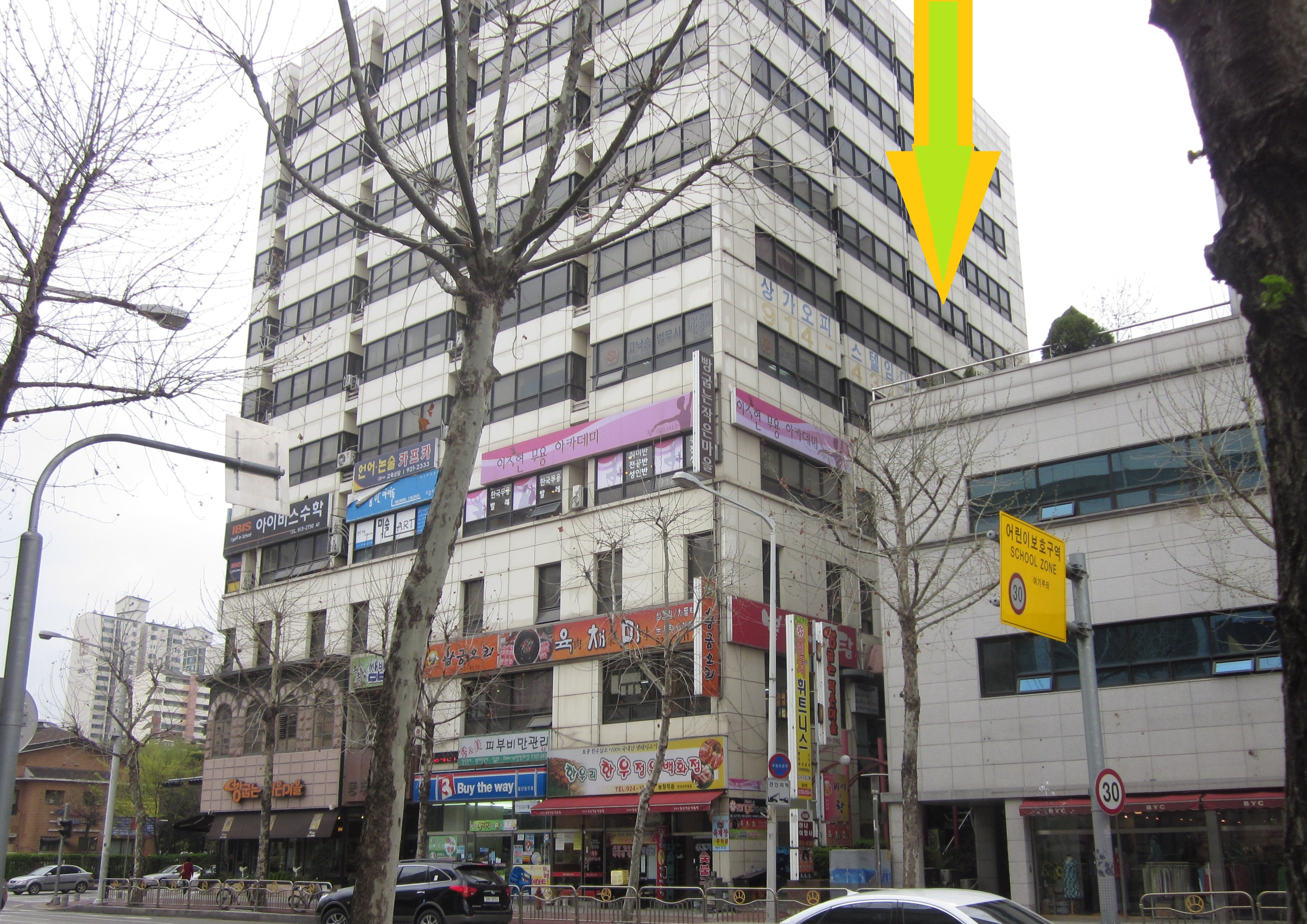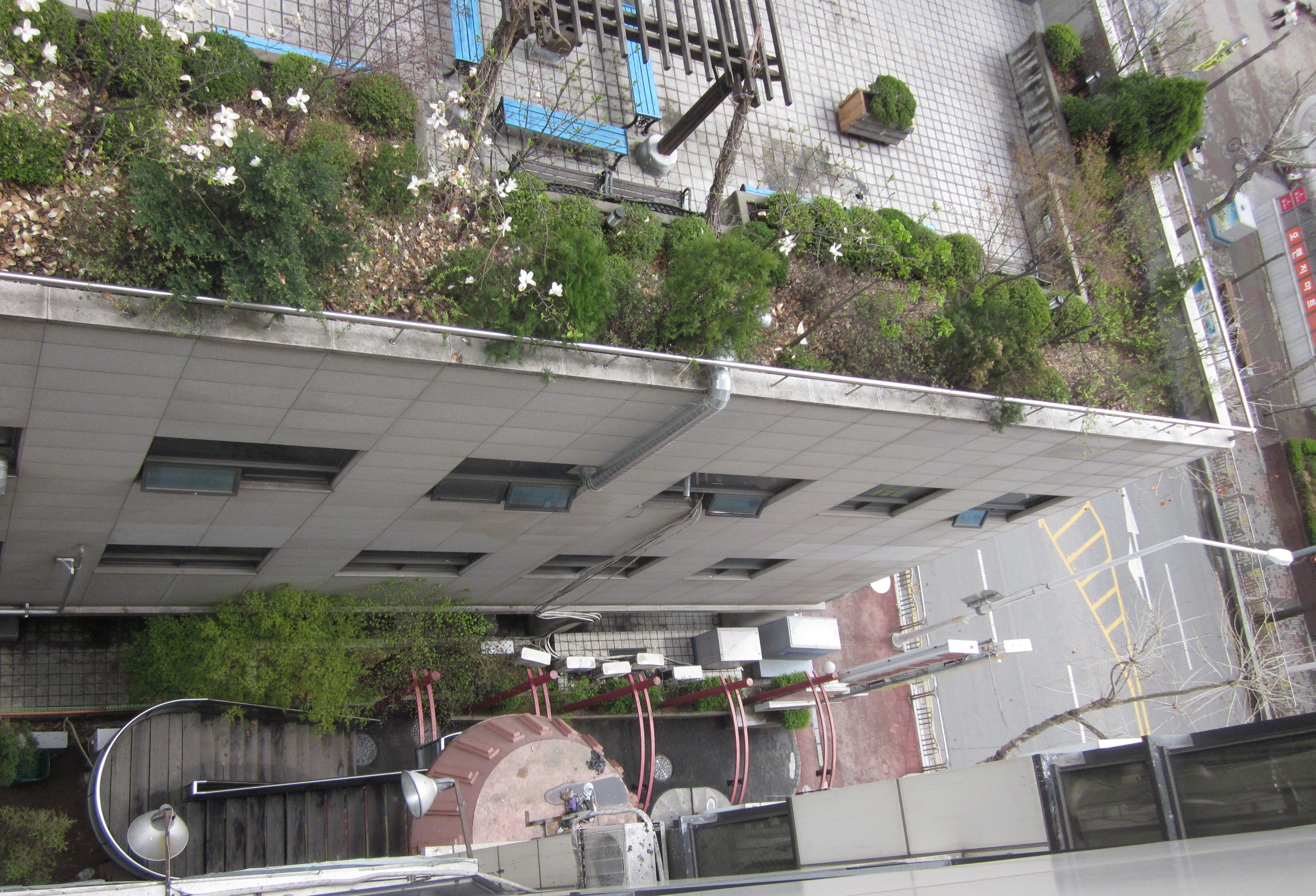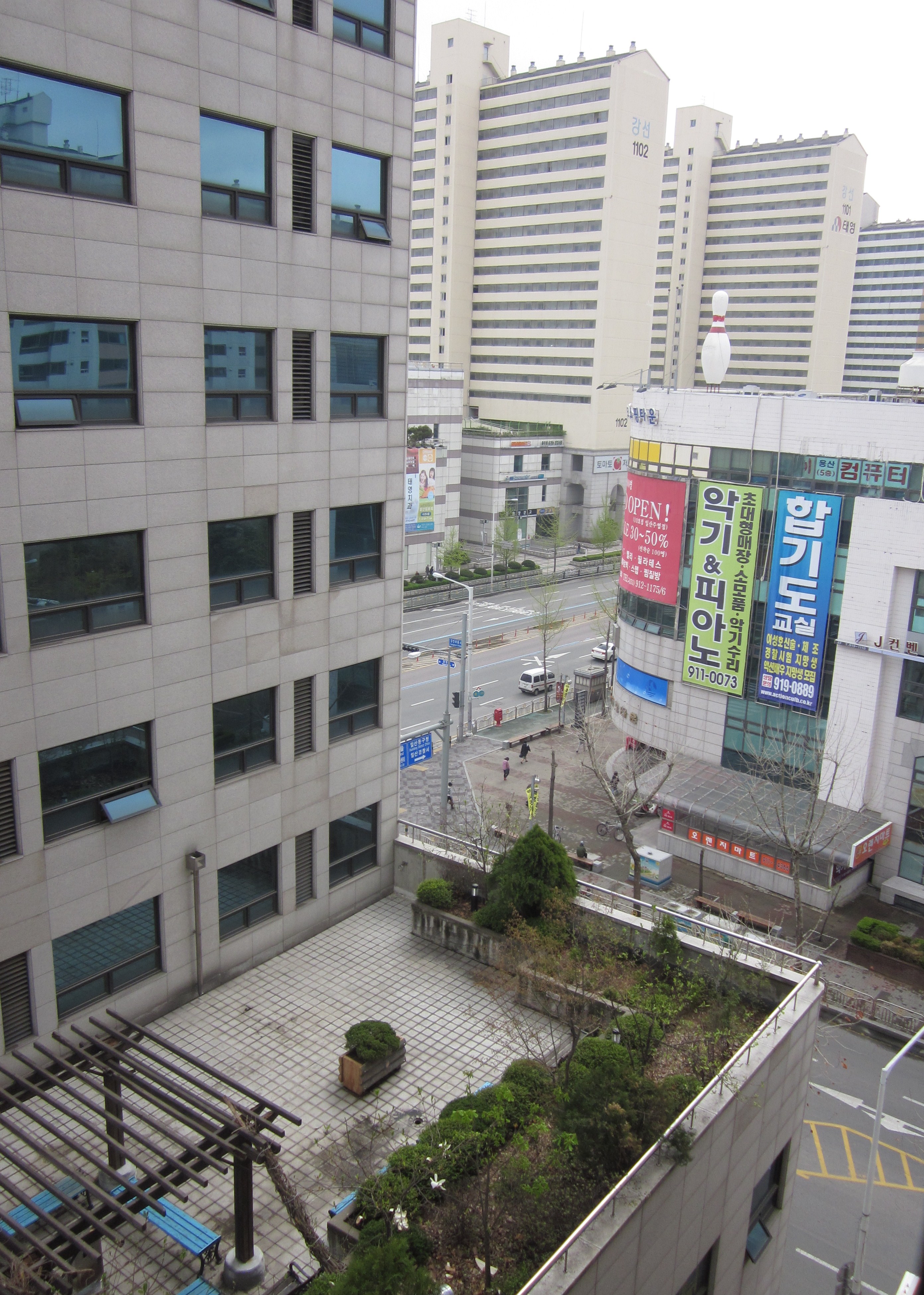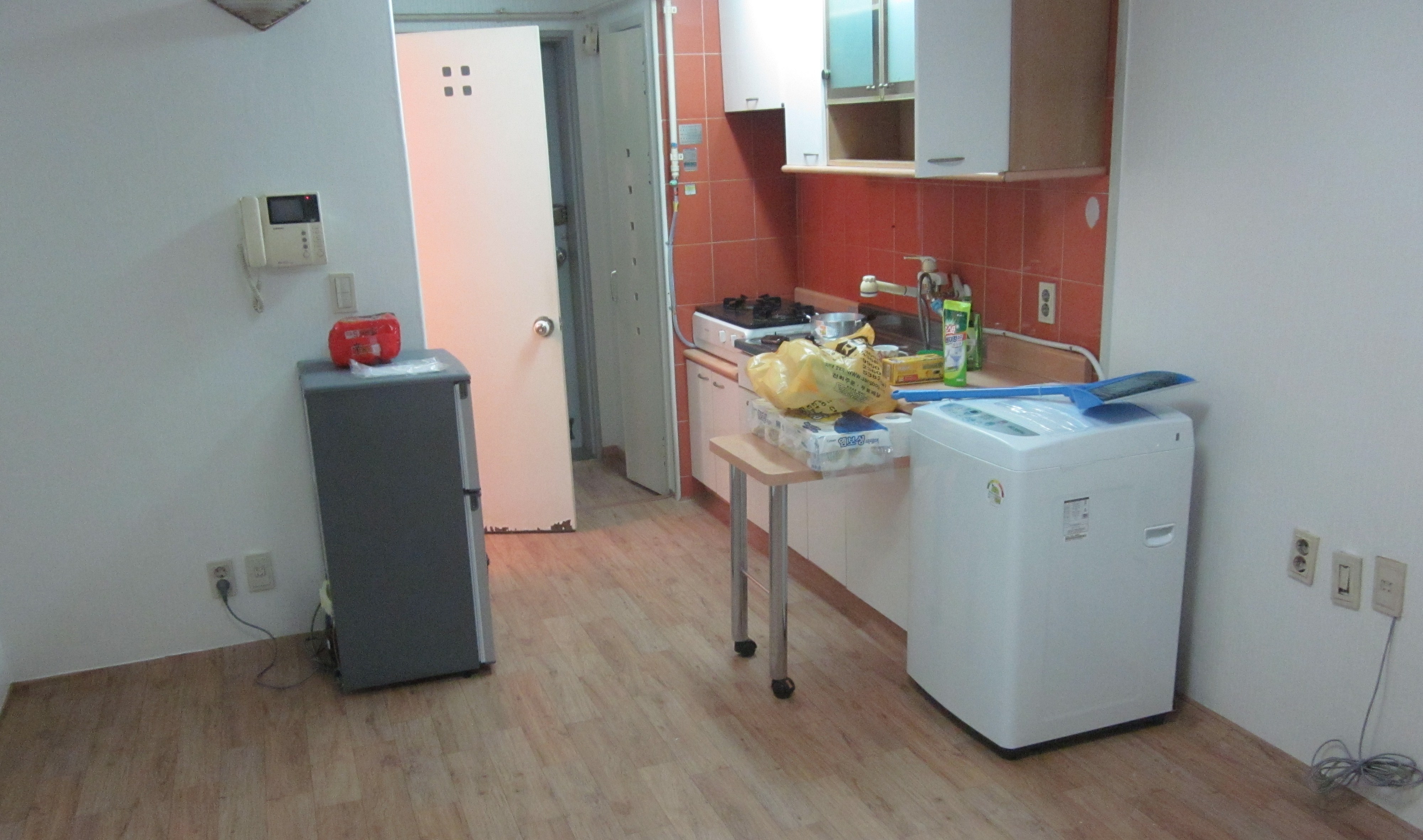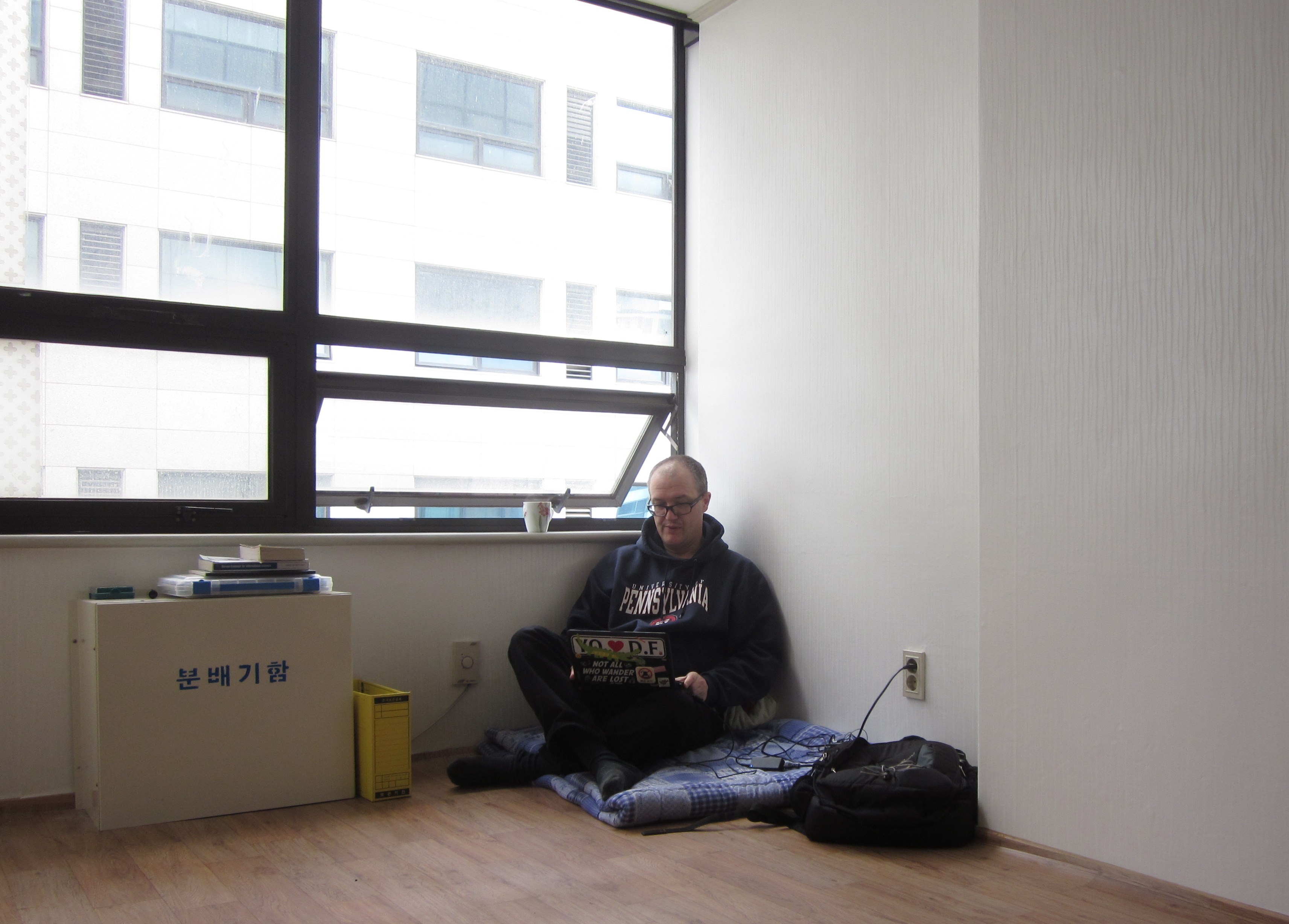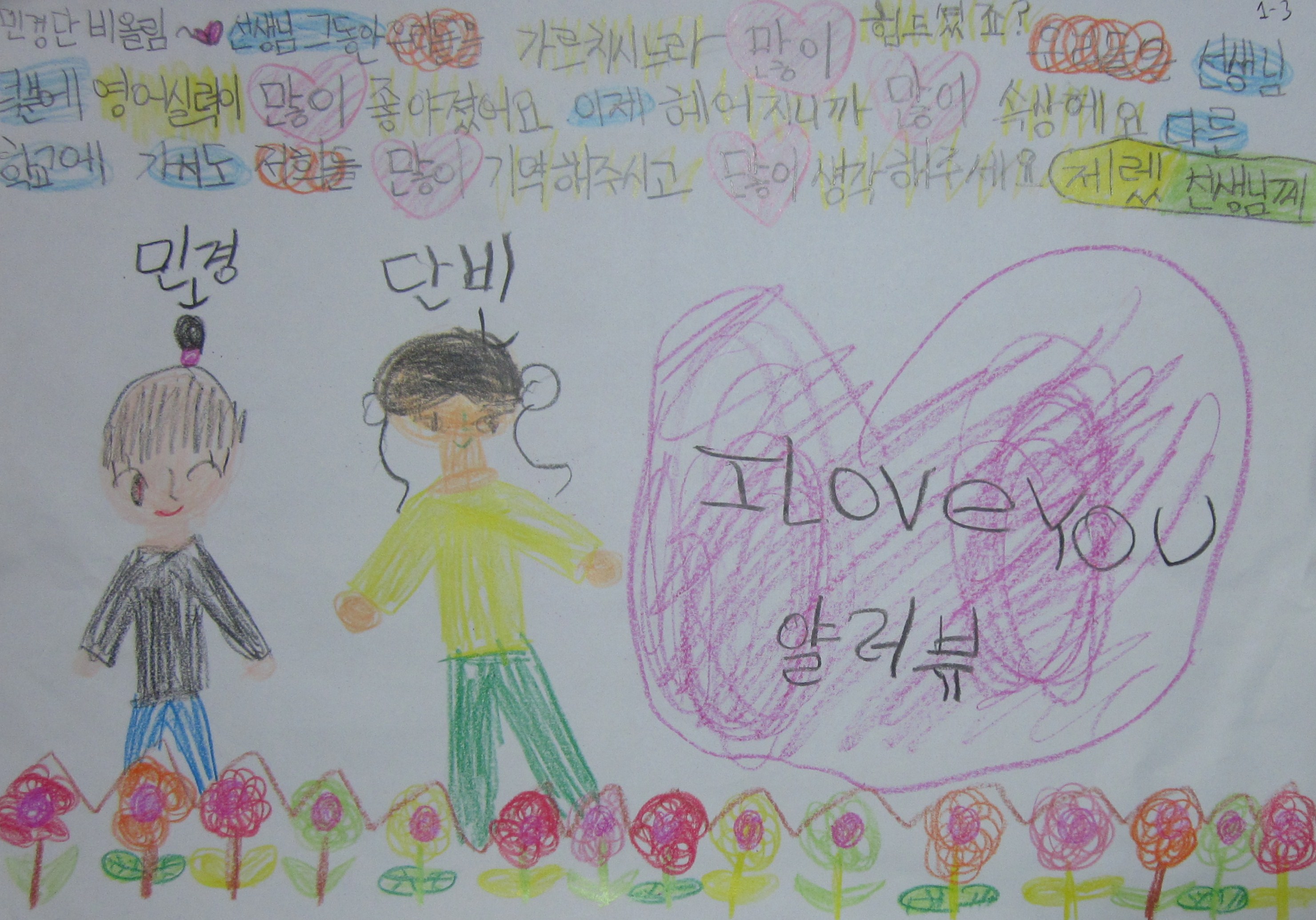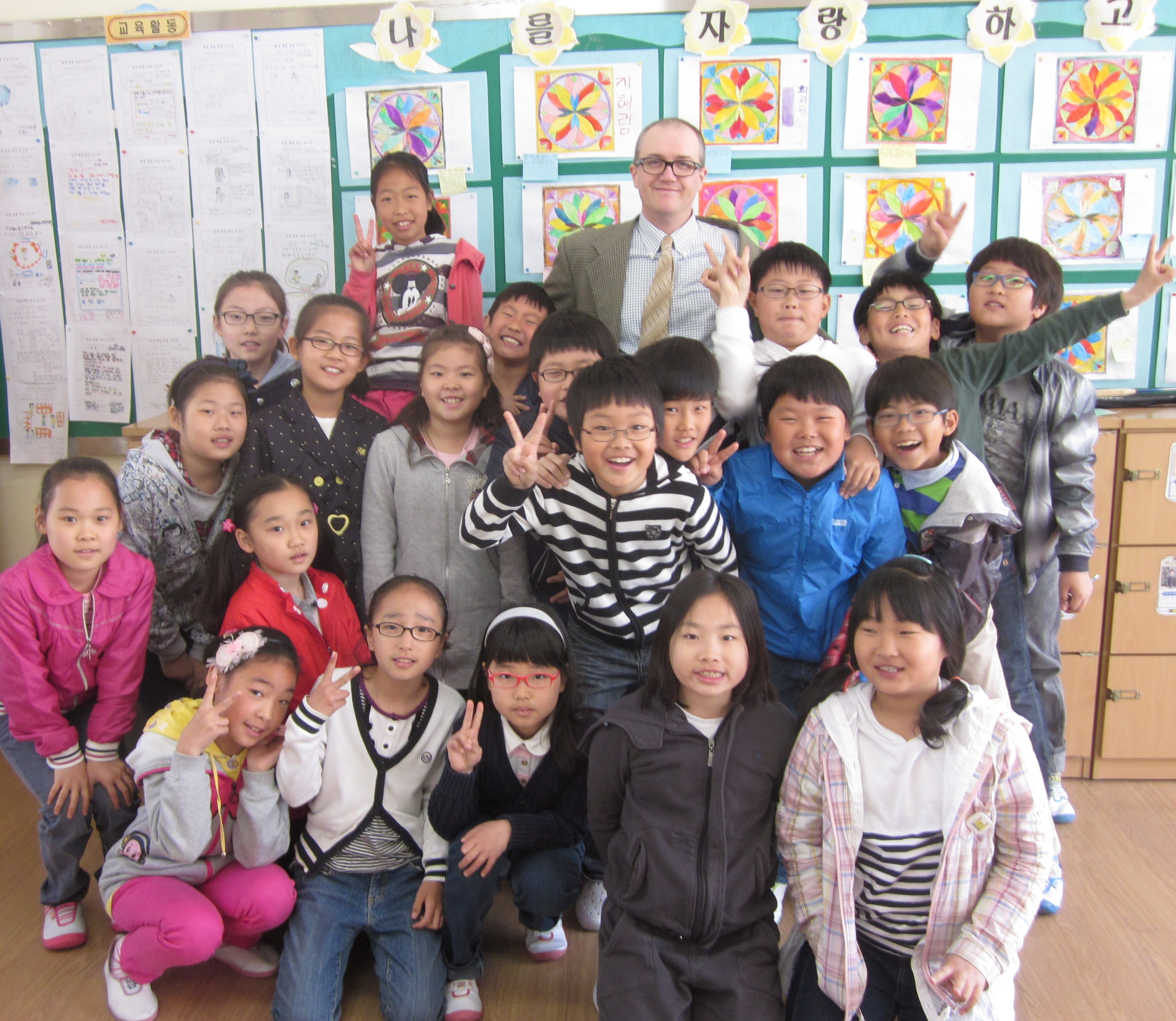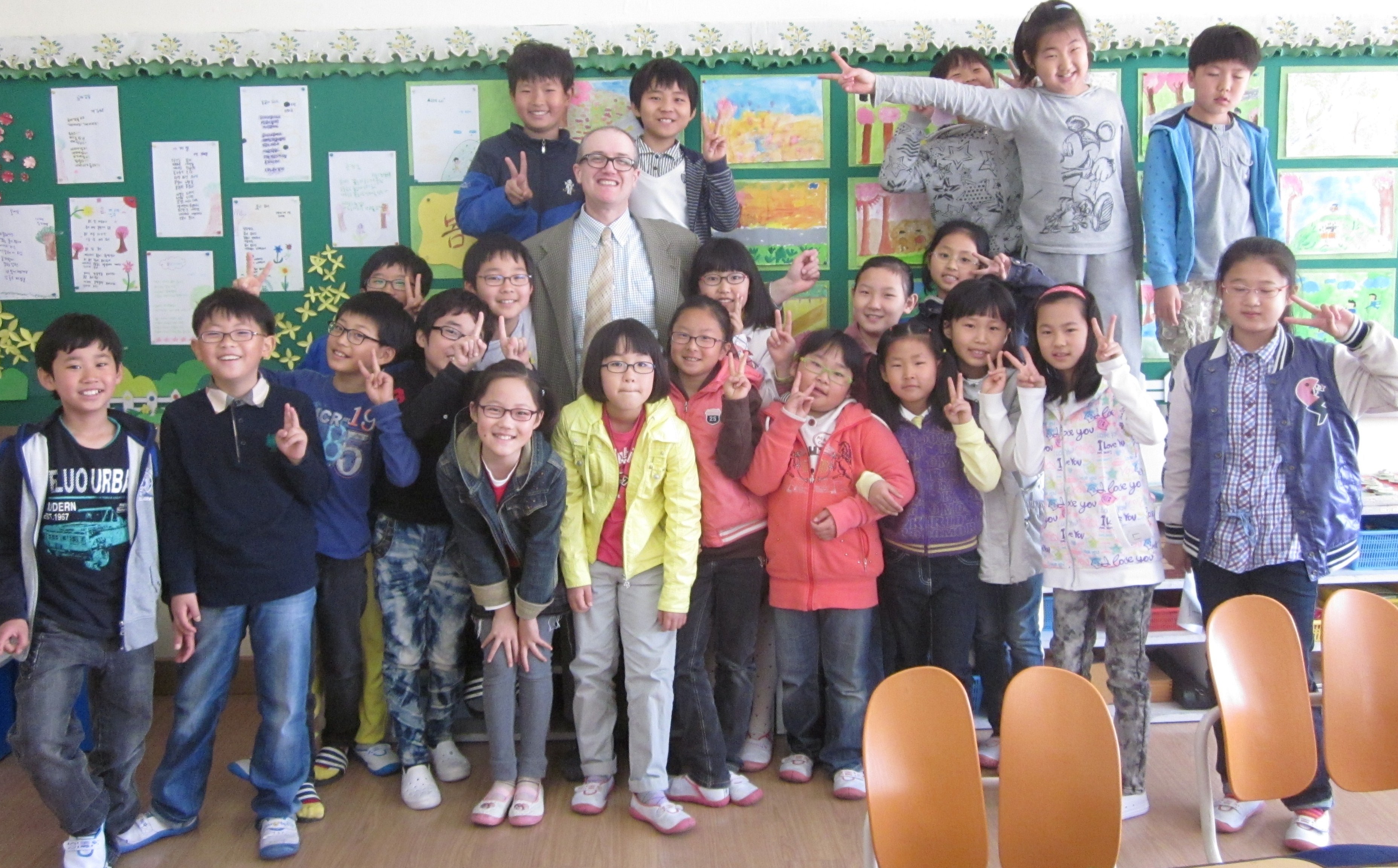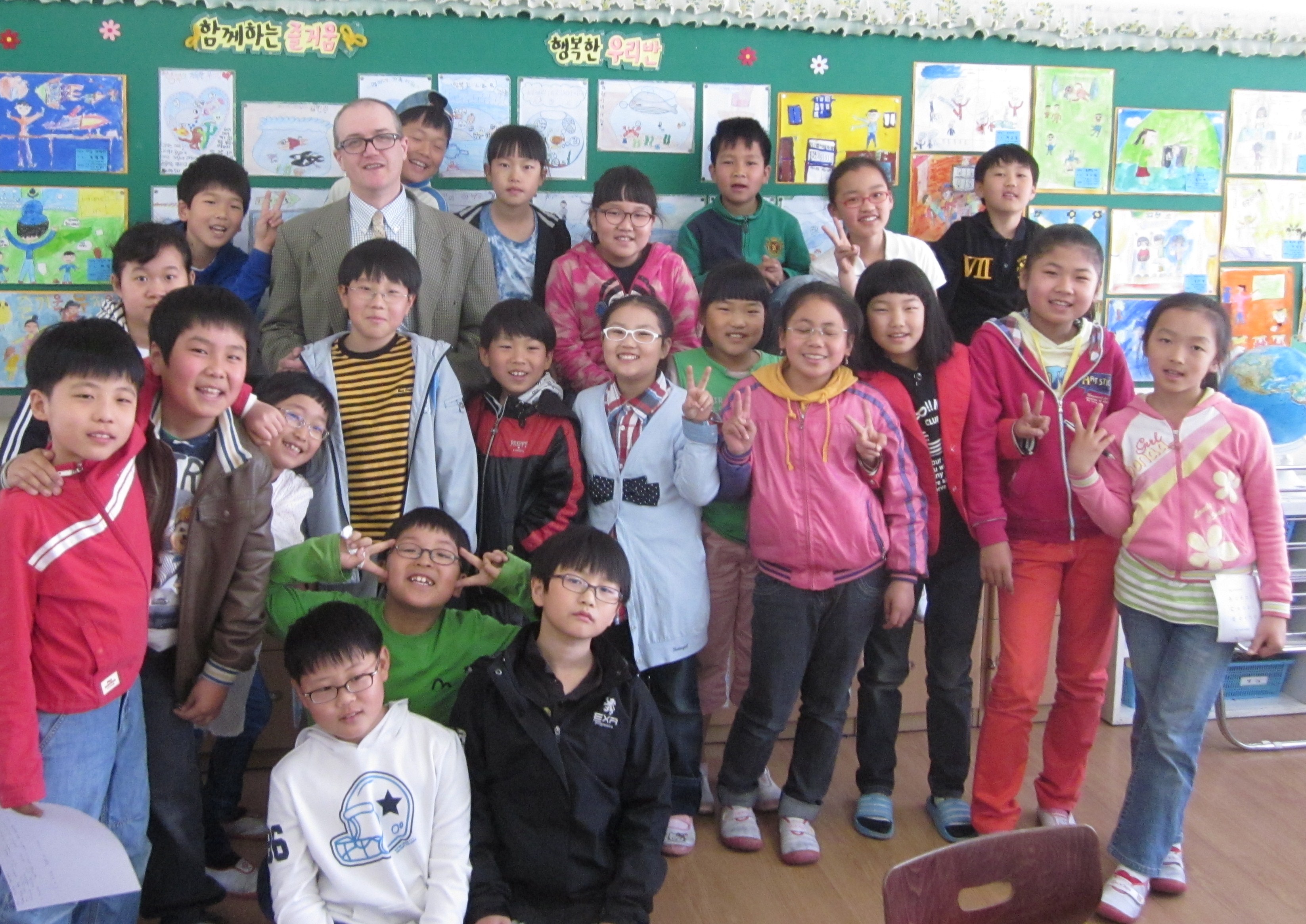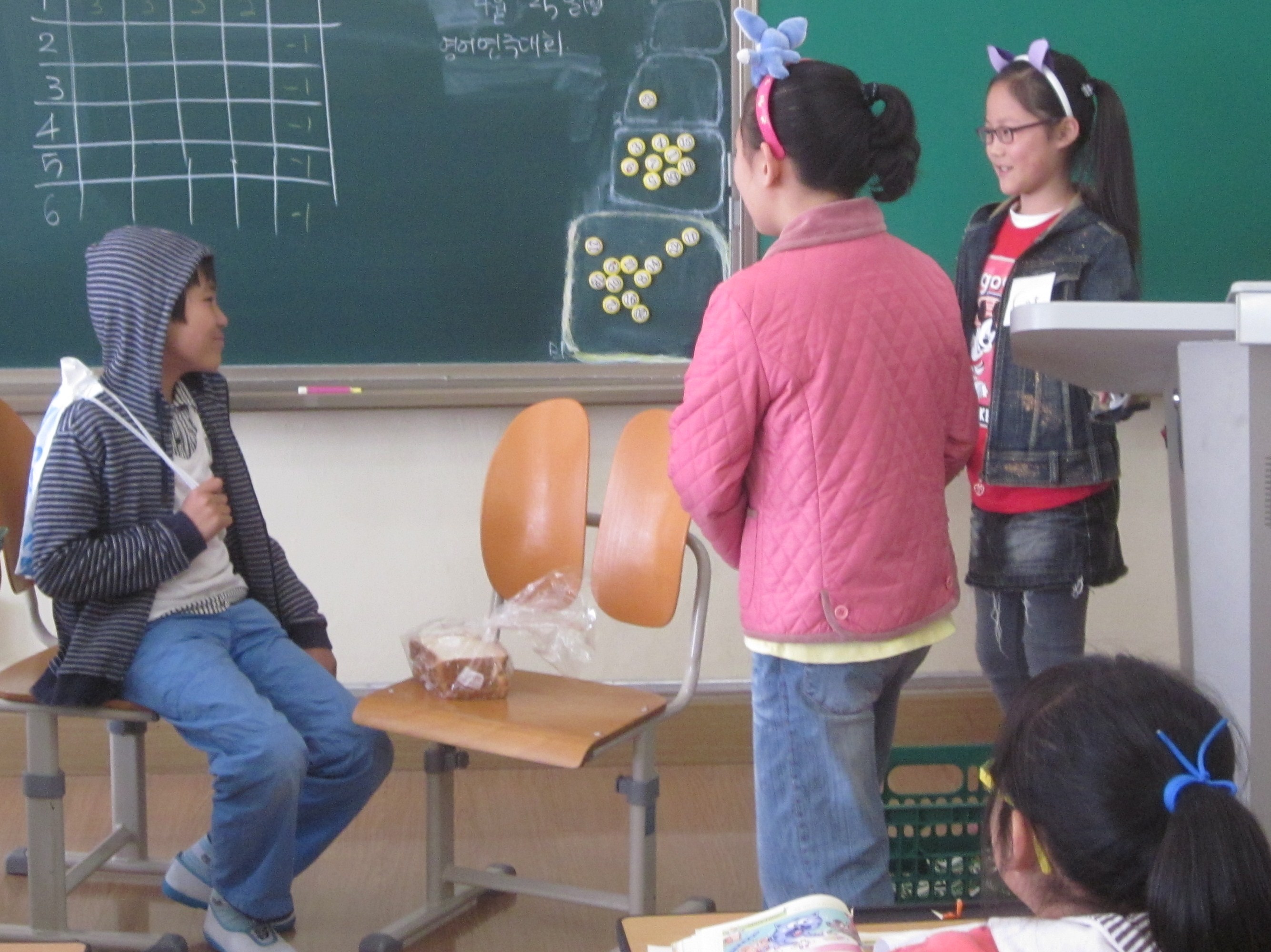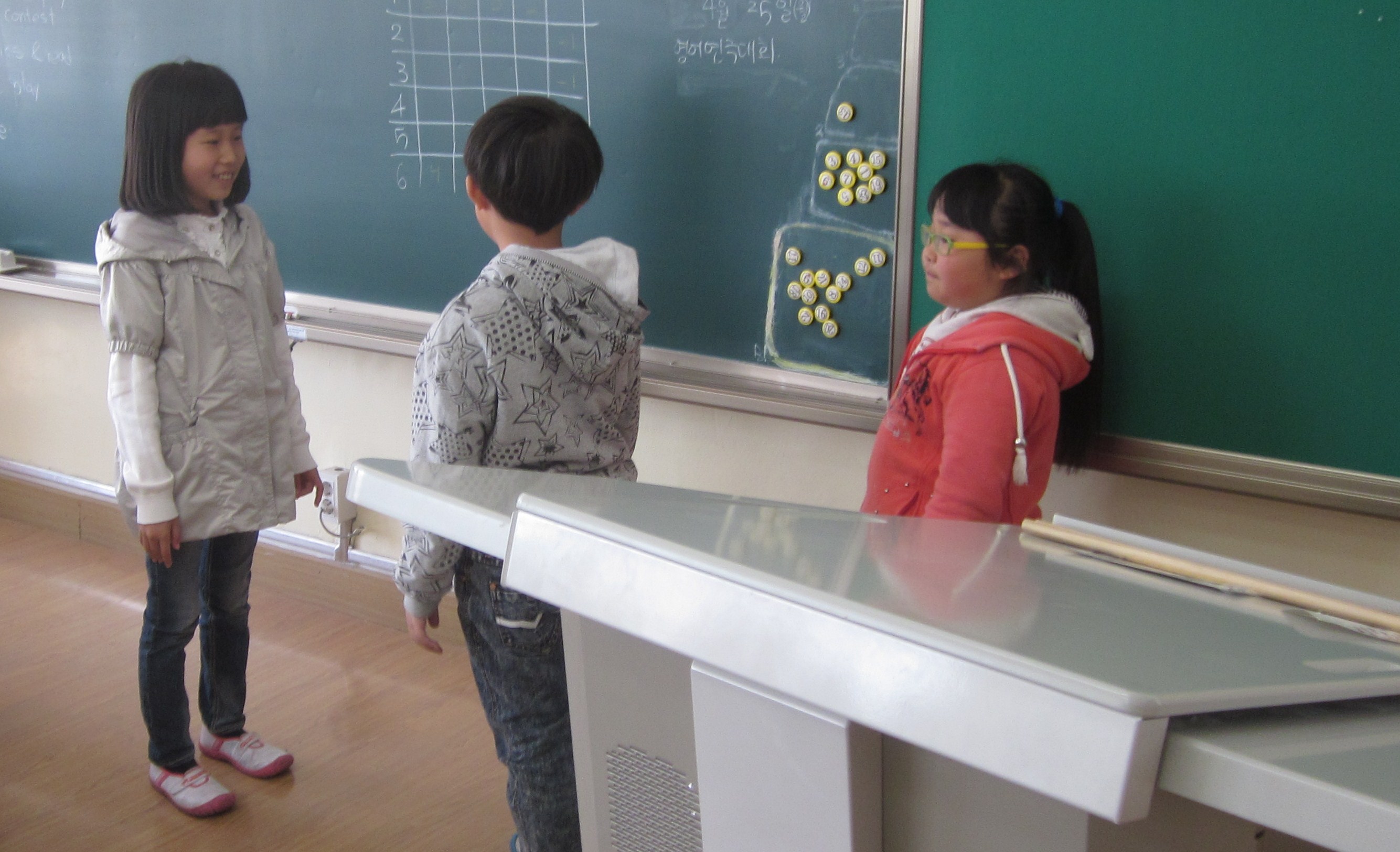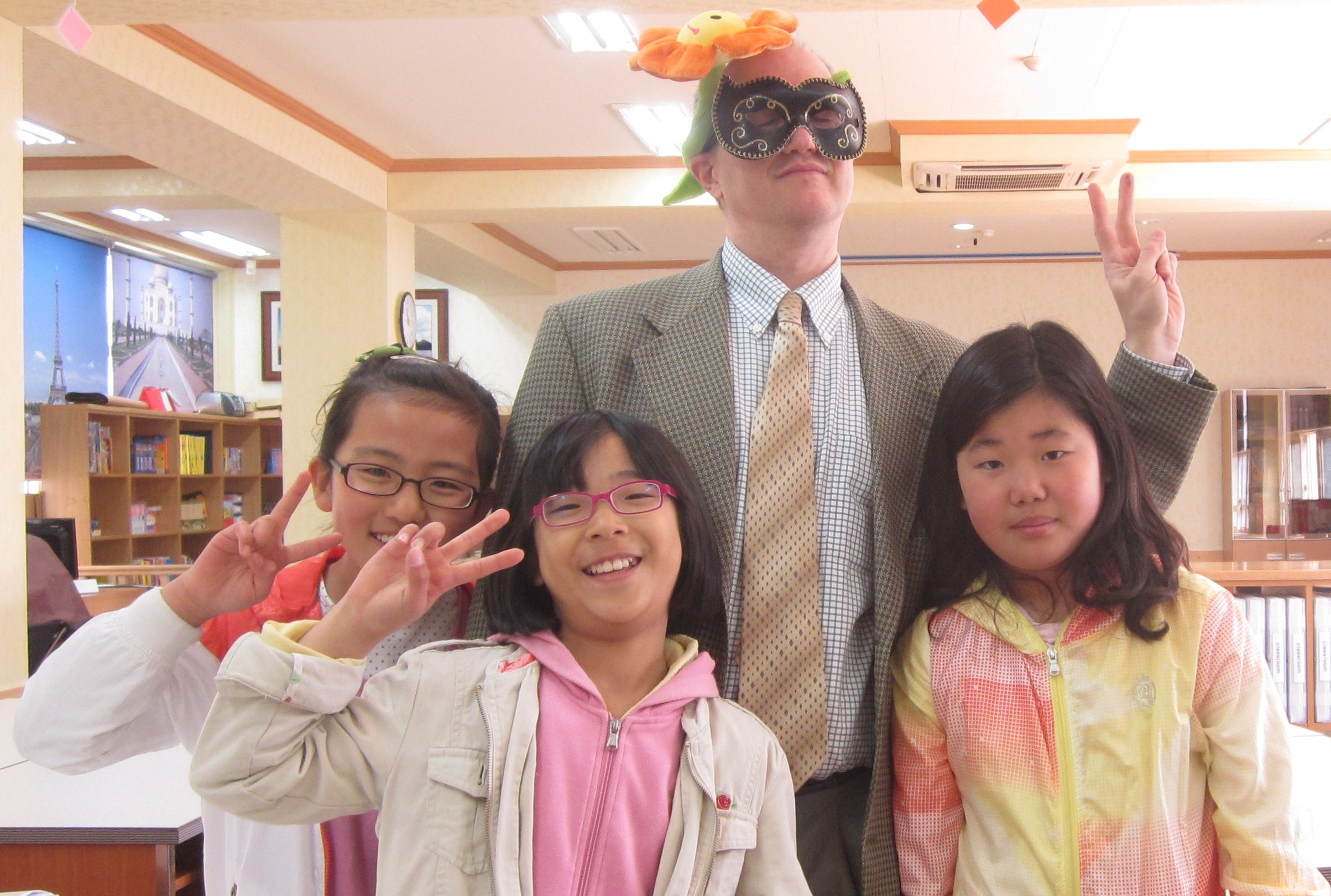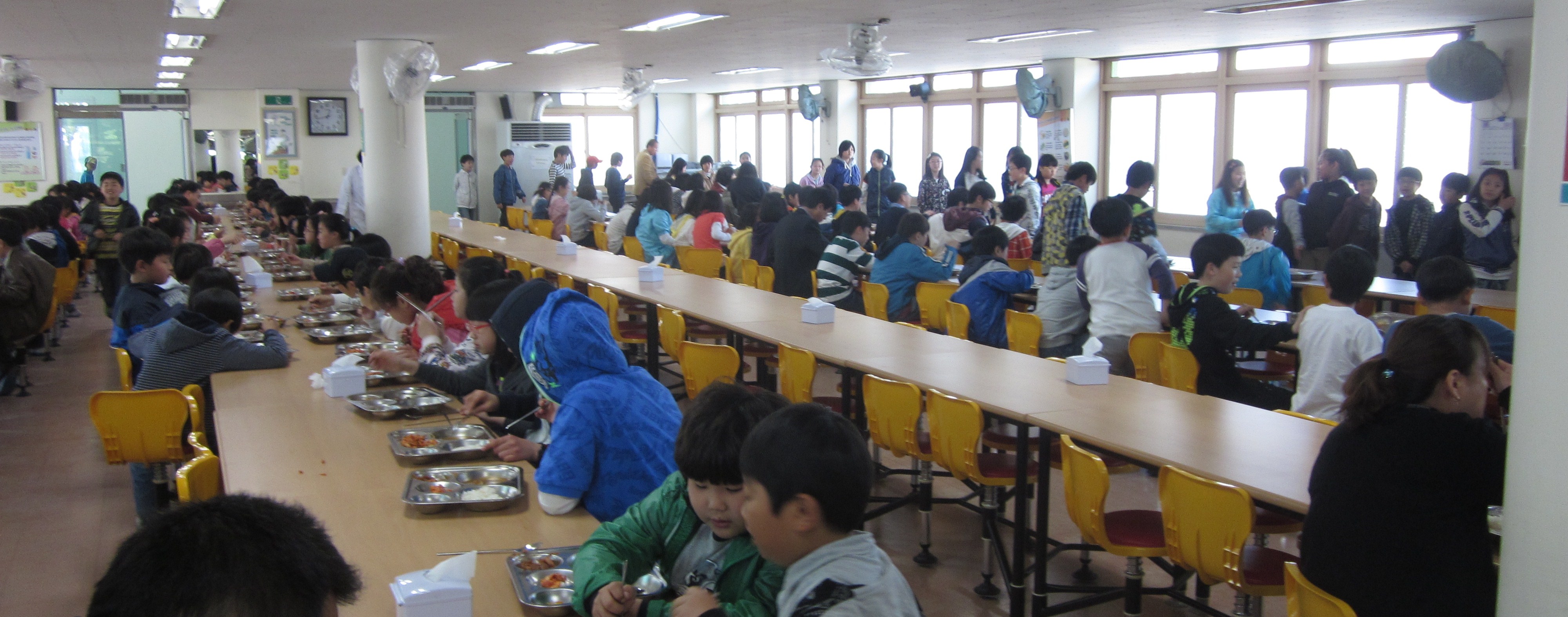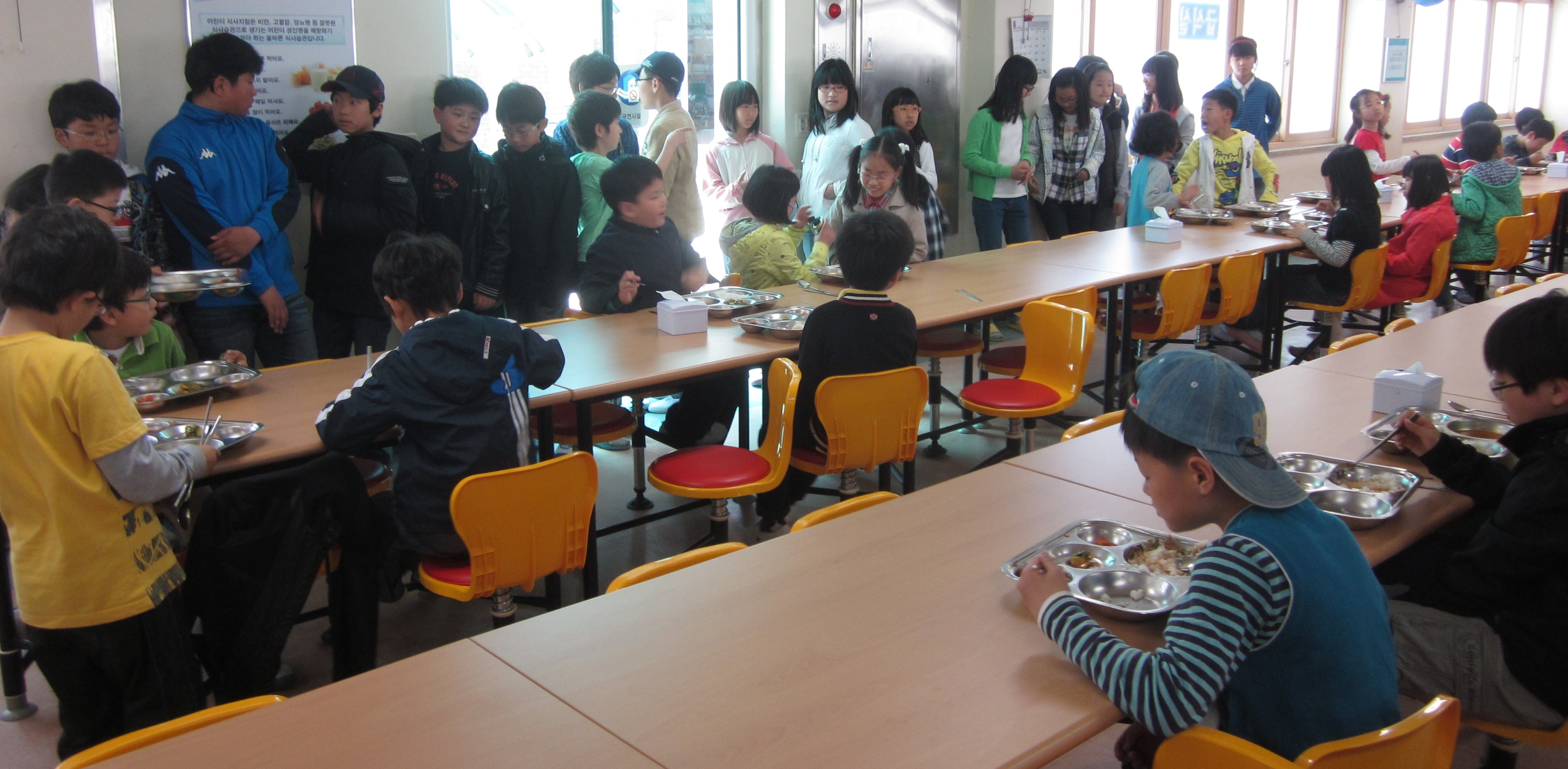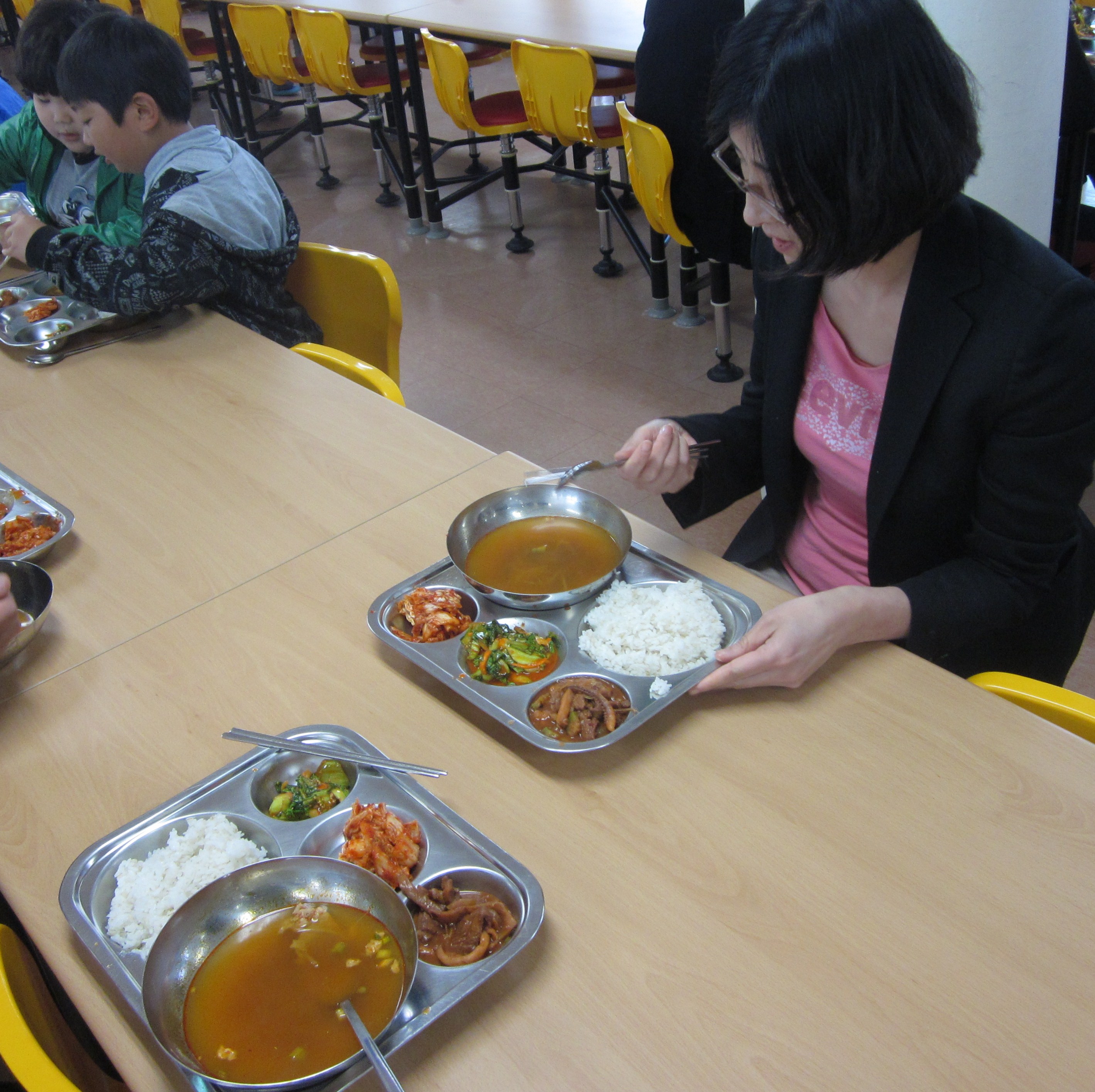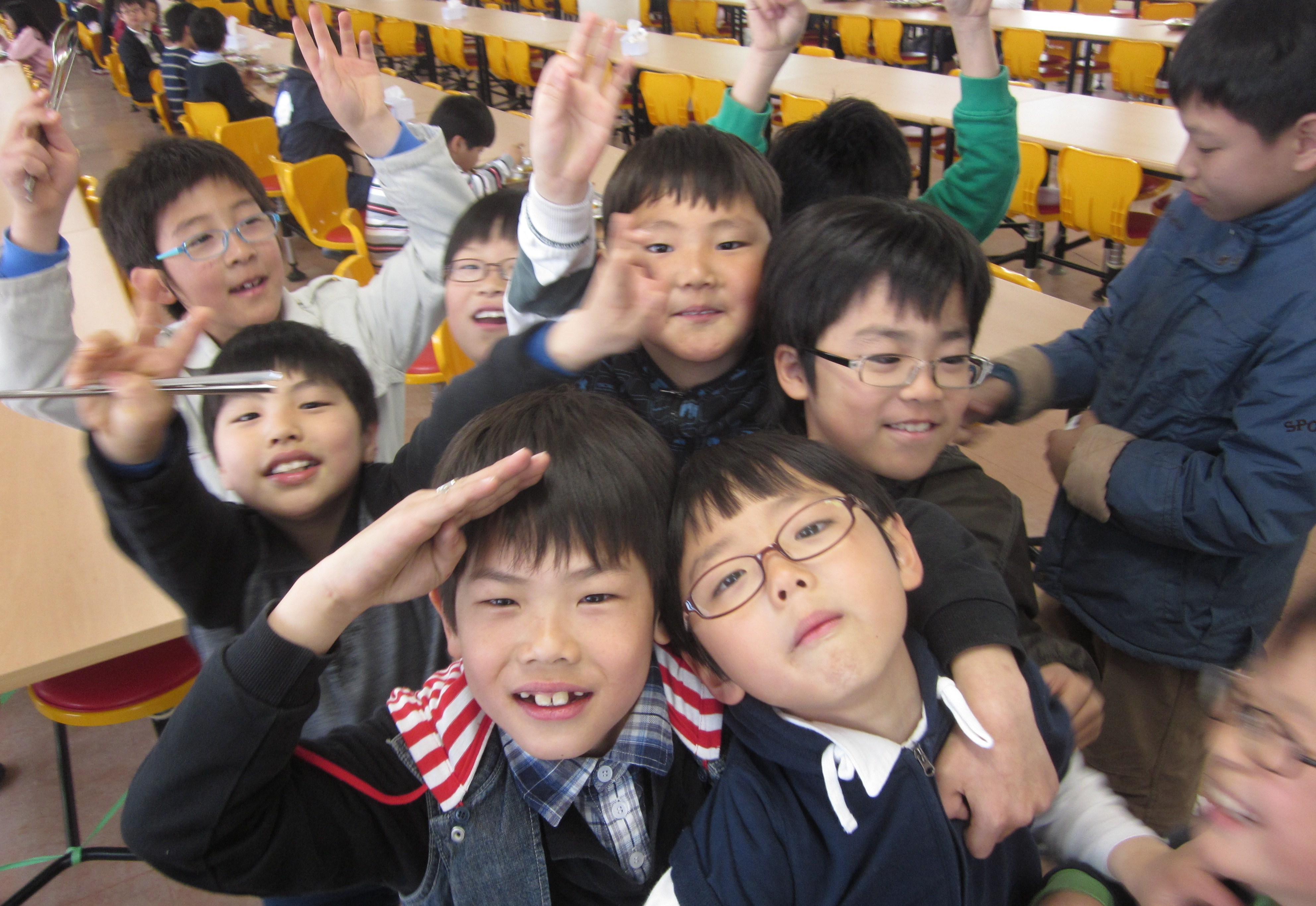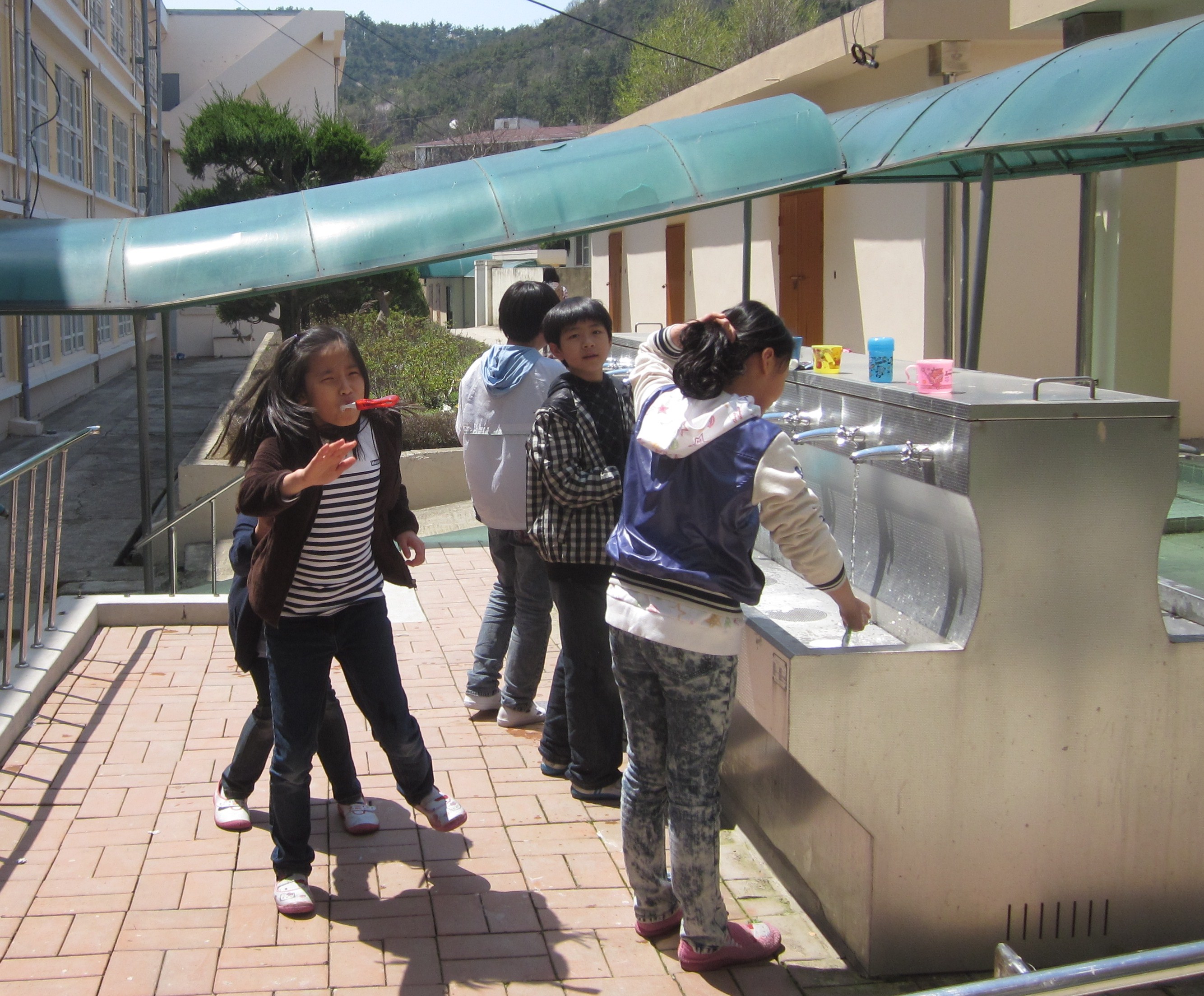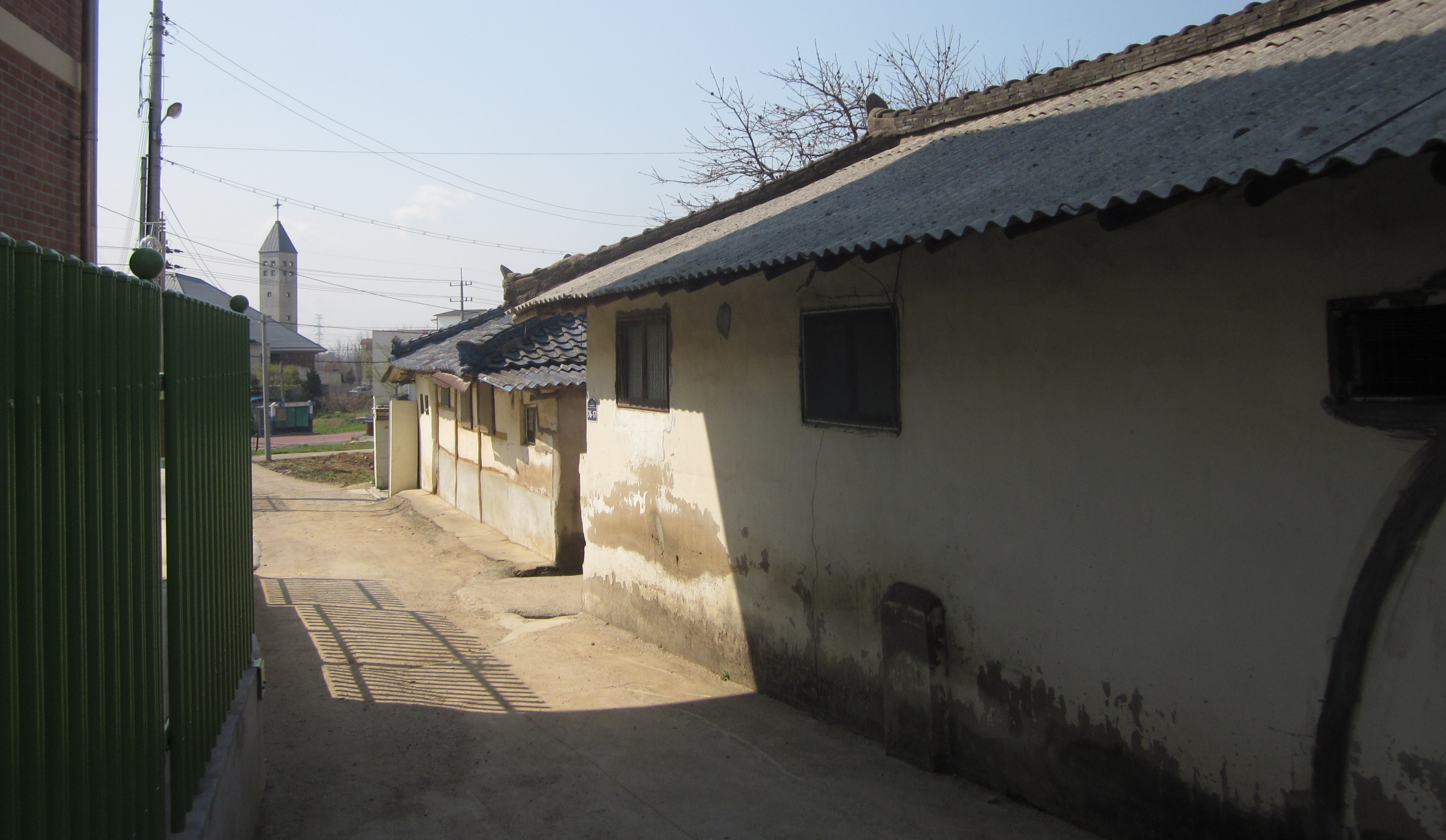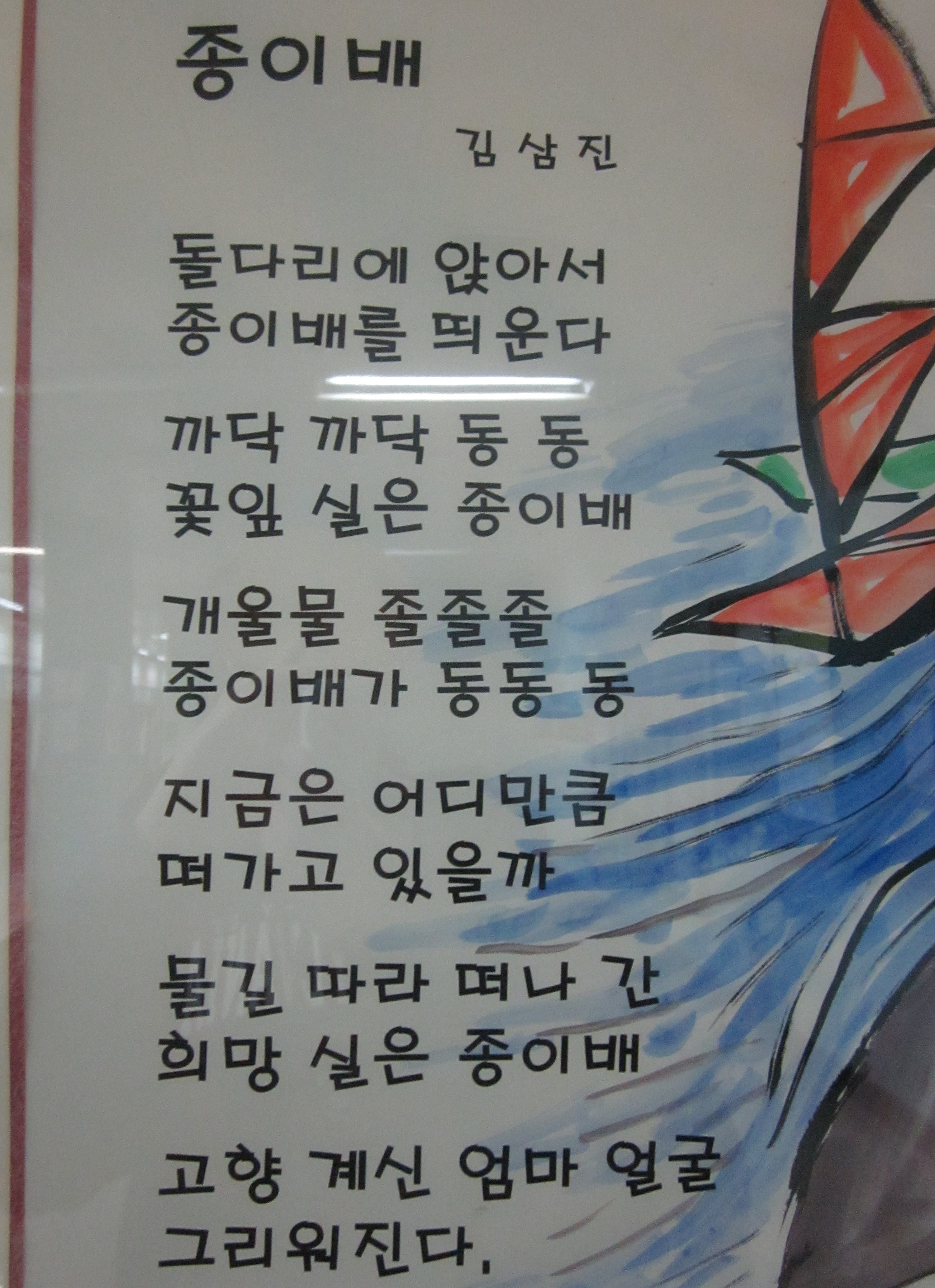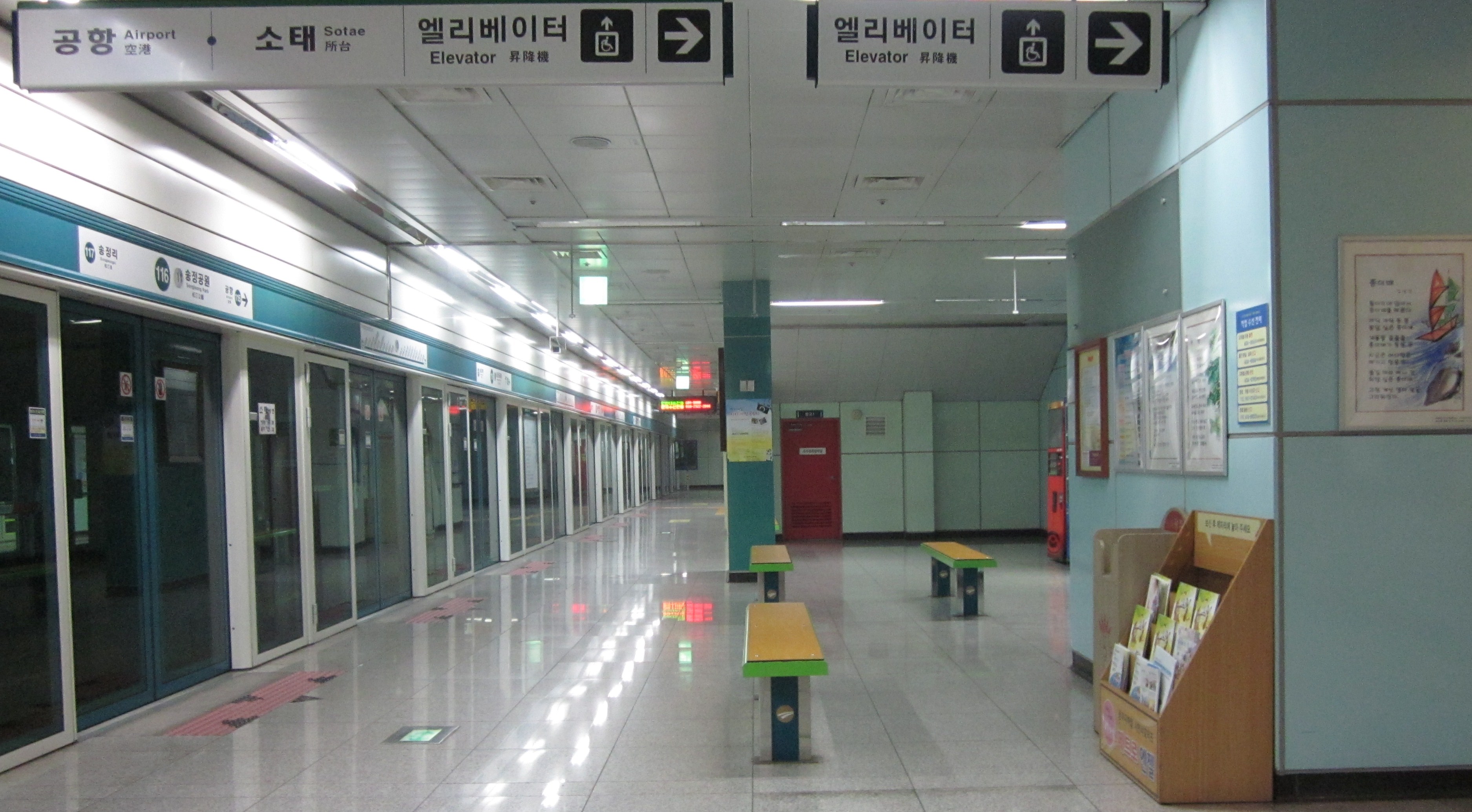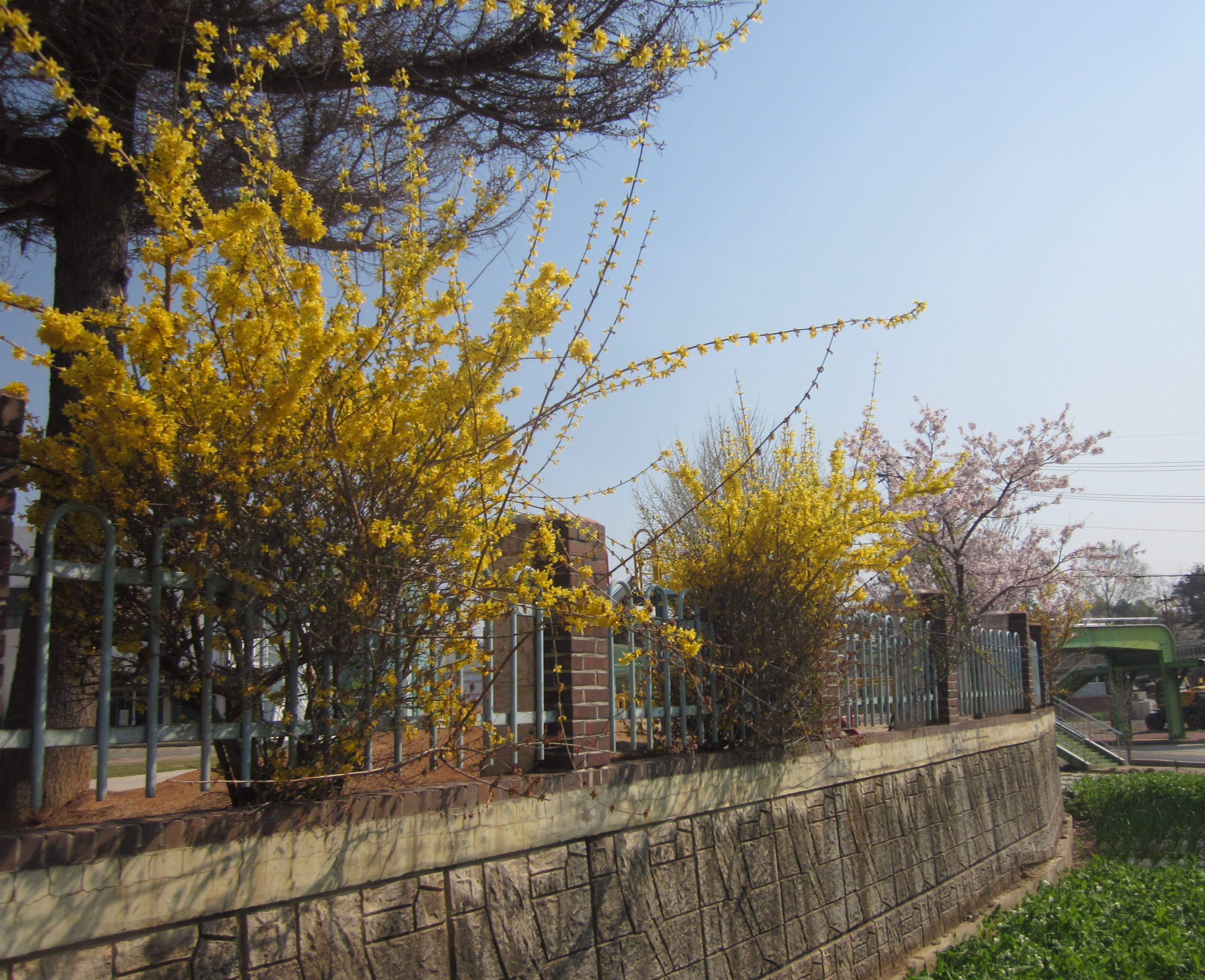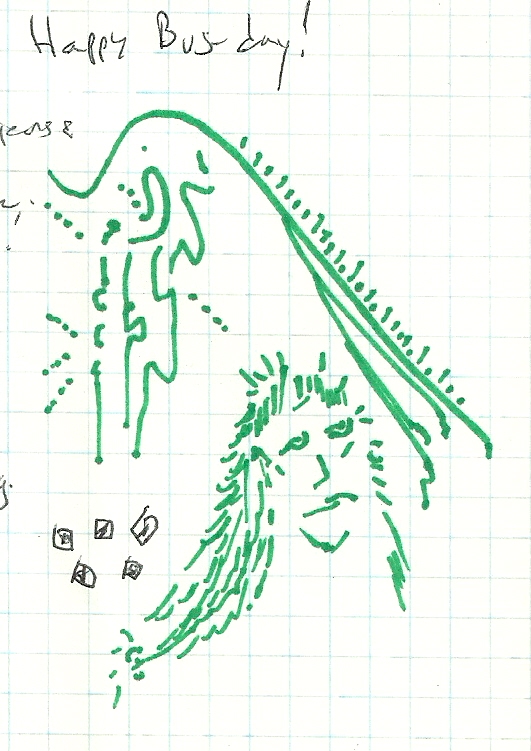Partly, I just really like saying the term Whorfian. It makes me think of Klingons, because of the inestimable Mr Worf from The Next Generation. And Klingons, of course, because of their language, are inextricably tied to first-order high nerdery (see, for example, the opera ‘u’).
But I’m not intending to write about Klingons. Rather, I have been meaning to discuss a rather long comment that my bestfriend Bob left on one of my blog posts from the start of the month. Bob’s comment presented the following anecdote (I’ll just cut-n-paste it here):
Apropos Korean language and culture, I heard a fascinating story yesterday from my Korean colleague here in the Music Department. Did you know that Korean Airlines pilots (and co-pilots, etc.) are only allowed to speak English in the cockpit? According to my colleague, this is because the myriad levels of formal discourse in the Korean language can make communication murky between subordinates and superiors (e.g., co-pilots and pilots). Analysis of black box tapes showed this after a Korean Airlines plane crashed several decades ago. The co-pilot tried to challenge a decision the pilot had made, but because of the circumlocution the co-pilot used, the pilot didn’t get what his colleague was trying to say. And the plane crashed, killing everyone on board. So now Korean pilots bypass the issues of formality and politeness altogether by speaking English. This sounded a bit far-fetched to me, but it came from a reputable source—an ex-pat Korean. Do you know if this is true? If so, it should give your linguistic/cultural interests something to chew on. Or perhaps you already wrote about this in a previous post at some point during the past 4 years?
I have heard this anecdote before. And I believe the fact that KAL pilots are only allowed English in the cockpit is probably true – this is true in many commercial airline companies around the world. But I always assumed the story behind the English-only rule to be a sort of urban myth. So I’m going to explain why I think that.
First of all, there are less baroque and more plausible reasons for a non-English-speaking country’s major airline instituting the English-only rule. Most significantly, since English is required by international aviation rules when communicating with ground control regardless of country (there’s that English is the international language thing, for you, if you ever doubted it), many countries require their carriers to use English in the cockpit for a simple reason – to keep people in practice because during a potential emergency, its use will thus be more reflexive. In countries such as Korea, with such atrocious English-language education (such as I proudly represent!), it serves also simply to provide the crew members with lots of practice.
So, that’s what you might call the constructive rebuttal – the counterveiling evidence. But I’m more interested in the claim made in the anecdote regarding the fact that Korean makes straightforward cockpit communication more difficult. And on that idea, without any concrete support pro or con with respect to the actual anecdote, my gut feeling is to call bullshit.
It’s probably true that sometimes Koreans have trouble communicating with those around them in what we in the west consider a straightforward manner. There are all these deferences and, yes, circumlocutions and oblique references that get in the way. This is cultural, however, not linguistic. There’s an important difference. It’s undeniable that language is the medium of this culture, but it’s one thing to say that culture comes embedded in language and another to say that language shapes culture. This latter view is called the Whorfian hypothesis, after the linguist Benjamin Whorf, who hypothesized it.
The fact is, Koreans are also perfectly capable of communicating straightforwardly with each other in the Korean Language, if they feel like it. If they’re in some kind of social context that allows them to relax the cultural rules, so to speak. A few minutes on a Korean elementary playground will bring my point home quite quickly, I think. Or just give some Koreans some soju and wait half an hour. Koreans have a term for this “low speaking”: 반말 [banmal – literally, “half speech”]. If KAL had wanted to ensure clear communication in the cockpit, they could have just as easily made a rule requiring 반말 as they could have made the rule requiring English.
But this brings me to a tangential point, which is fascinating in its own right. There is a strong belief in Korea that English, as a language, not only doesn’t require deference or politeness, but that it isn’t capable of it. This belief is further reinforced by the tribes of badly-educated, poorly-behaved, and ill-informed foreign English native-speaking teachers that sojourn in the republic. It makes for a bit of a depressing battle, sometimes, with Koreans, when I’m forced to explain, over and over, that phrases like “fuck you” or “shut up” are not always appropriate in English.
“Really?” my surprised interlocutors sometimes react. “But you see it in the movies…” I point out that you can see all kinds of low and banmal Korean Language use in Korean movies, too – but that doesn’t mean you should use it with your teacher or your boss or even your friends. “Oh, wow, I suppose that’s true,” they asnwer, reflectively, new understanding dawning on their faces.
Koreans are perhaps encouraged in their belief that English is a “low-only” language by the lack of complex, grammaticalized forms of humility and deference that my friend mentions above. And to that extent, perhaps there’s something Whorfian going on – they’re letting the shape of their language guide preconceptions about how deference and humility should work in other languages and cultures.
But finally, I reject what we might call the stronger Whorfian hypothesis (with respect to this particular anecdote) not just because of the existence of banmal, but also because there are Koreans who have perfectly good English who are nevertheless utterly incapable of communicating directly or straightfowardly in English, either (cue typical Korean English teacher trying to communicate with his or her English native-speaking coworker). It’s the culture shaping the language, clearly, and not the other way around.
As far as the anecdote above, it’s easy to imagine the guys in the cockpit, forced to speak English, and still failing to communicate – they’ll just end up being circumlocutious with less vocabulary and more limited grammatical resources to convey humility or deference. And, contrariwise, if a Korean co-pilot manages to say to his superior, “shut up, you’re making a fucking mistake, don’t be an asshole,” it’s more likely because he believes English requires him to communicate this way, than because Korean prevents him from doing so (cue Korean playground squabble or typical drunken bar confrontation). The anecdote, circulating in the culture, reinforces that belief, and so, to that extent, perhaps the English-only rule does serve to clarify things in the cockpit.






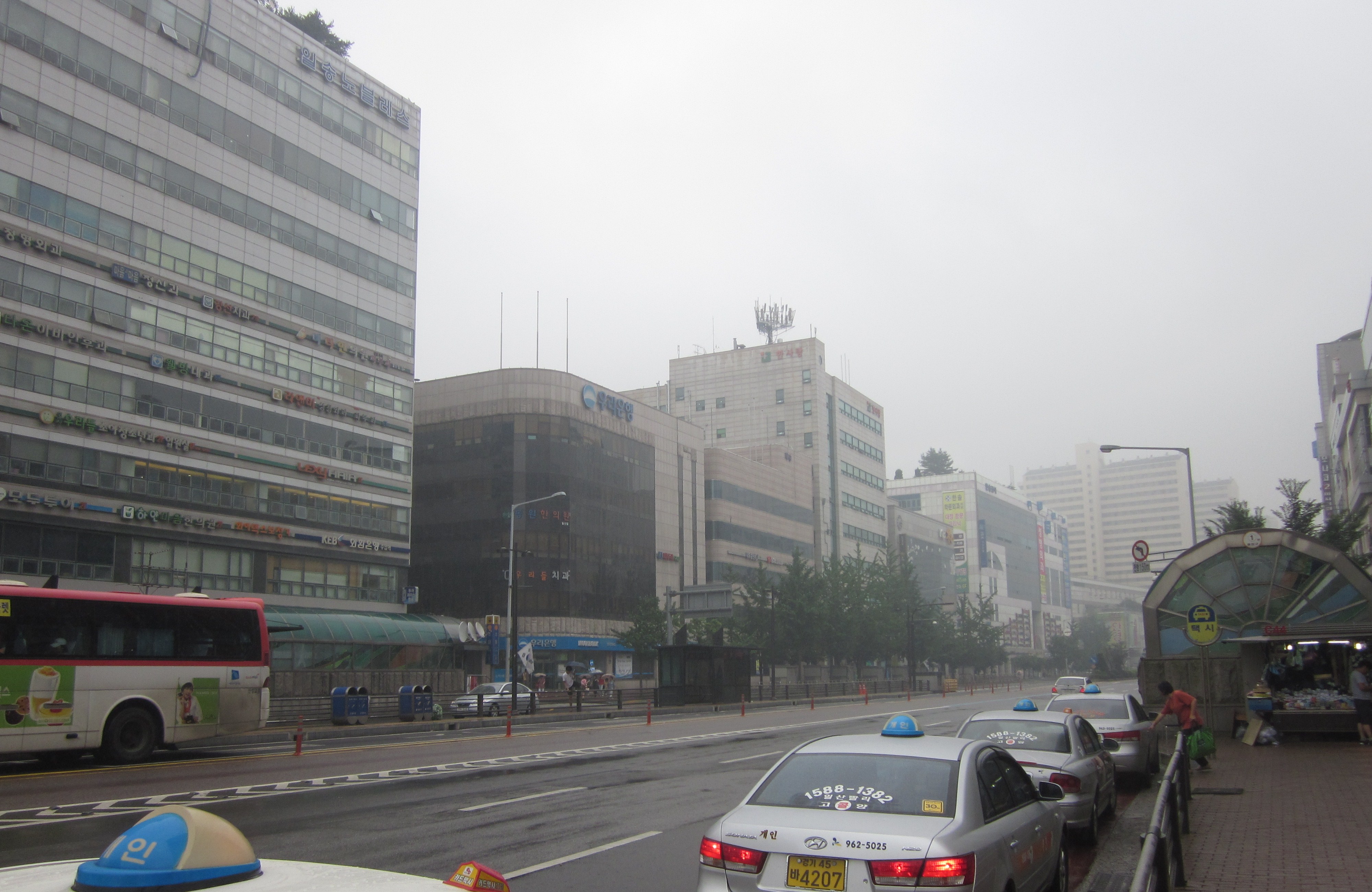
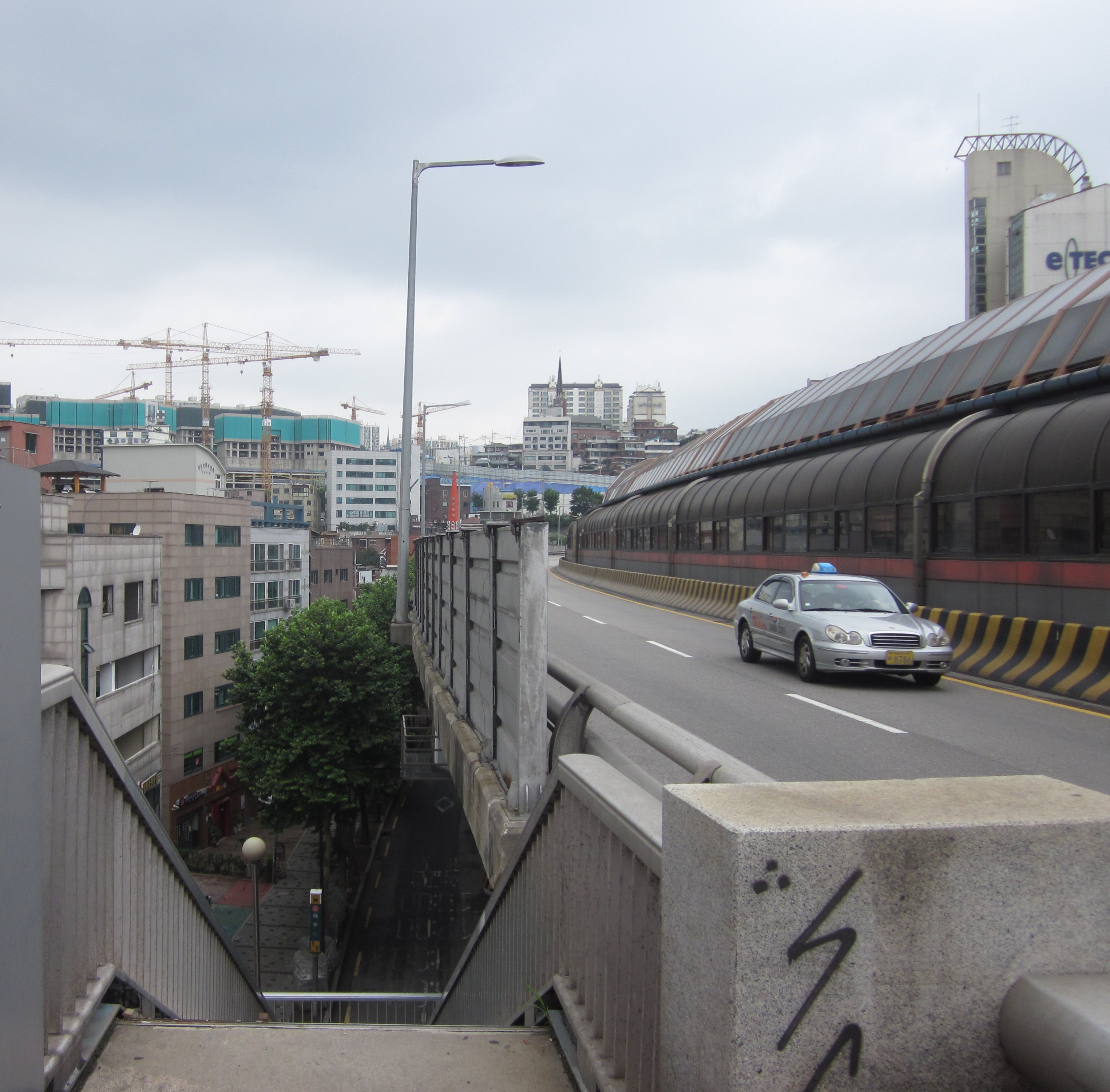
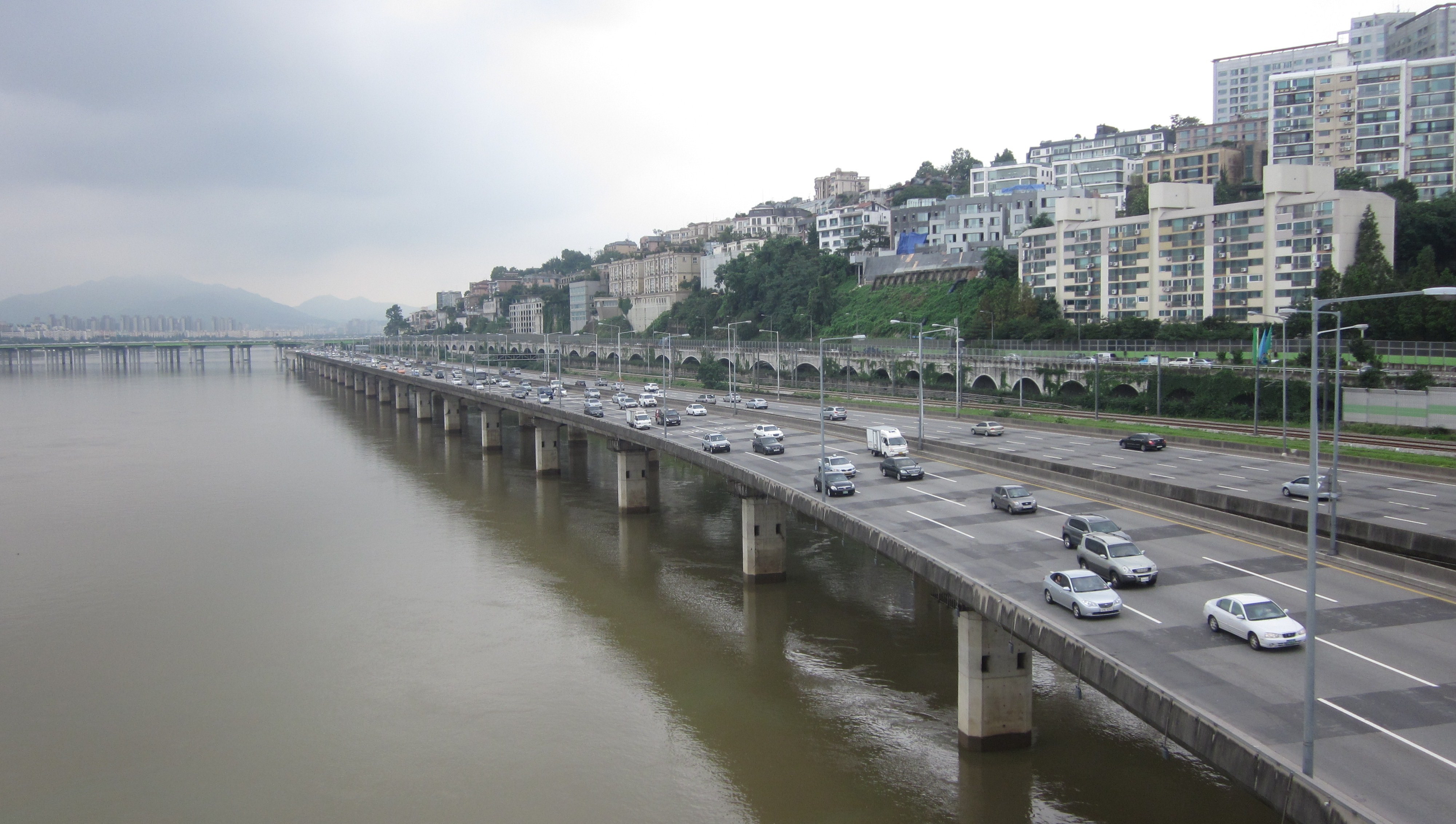
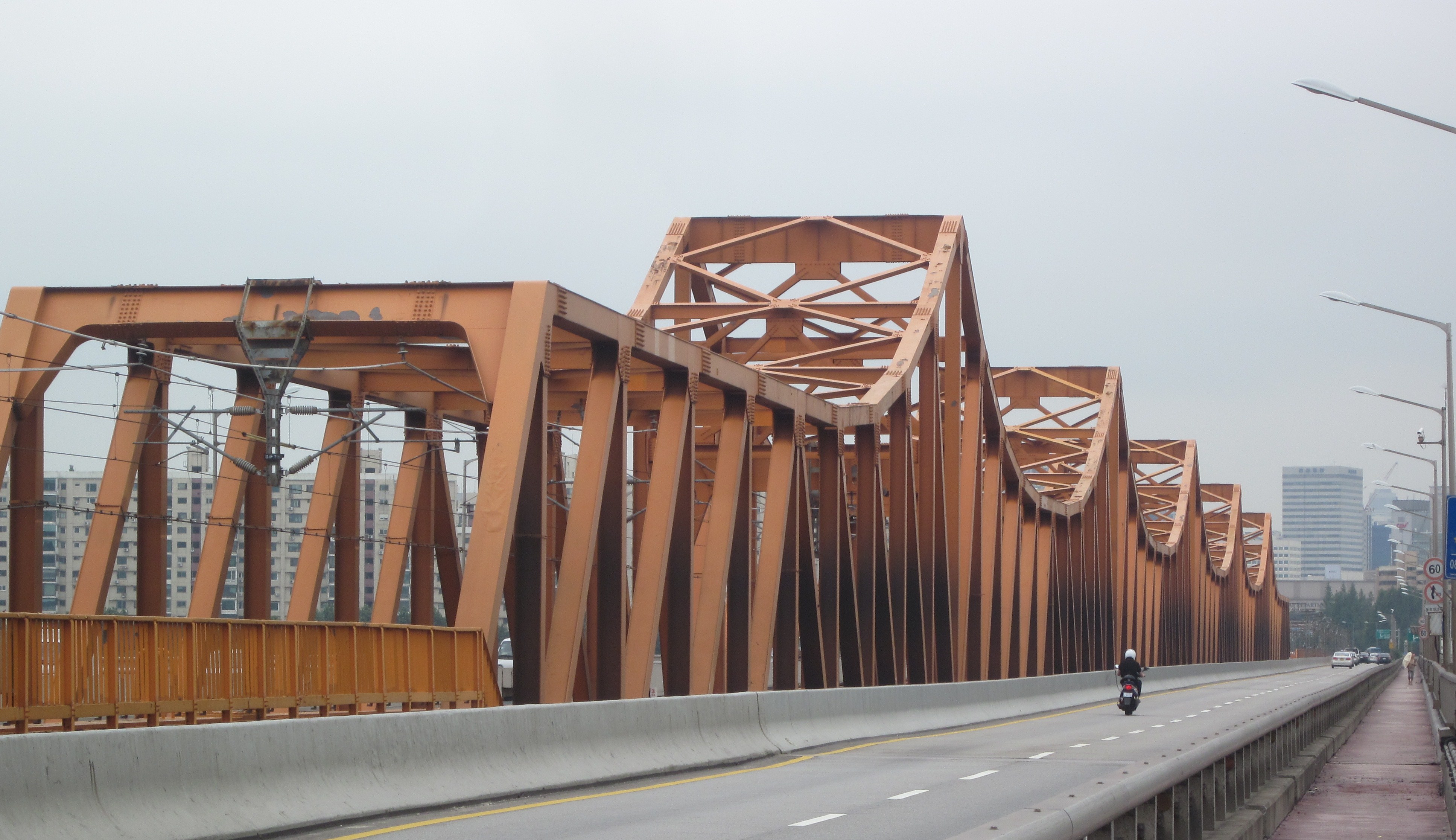
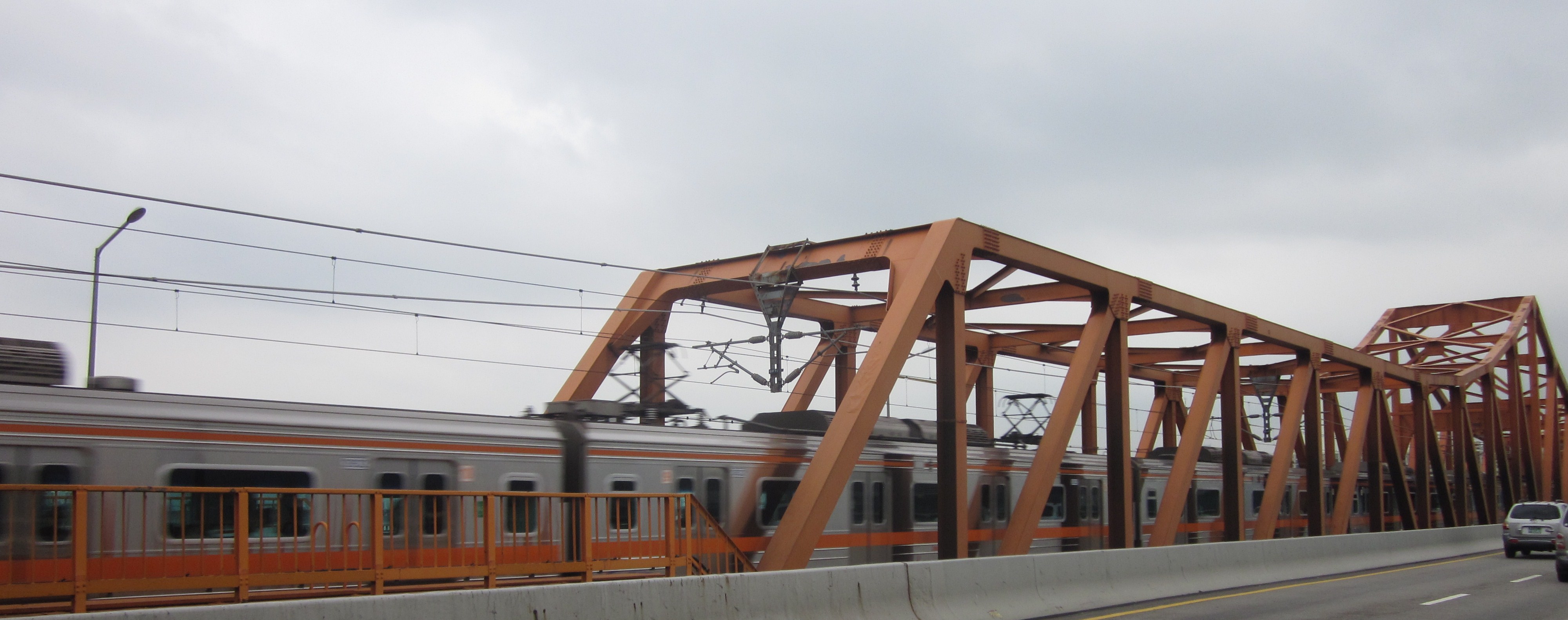
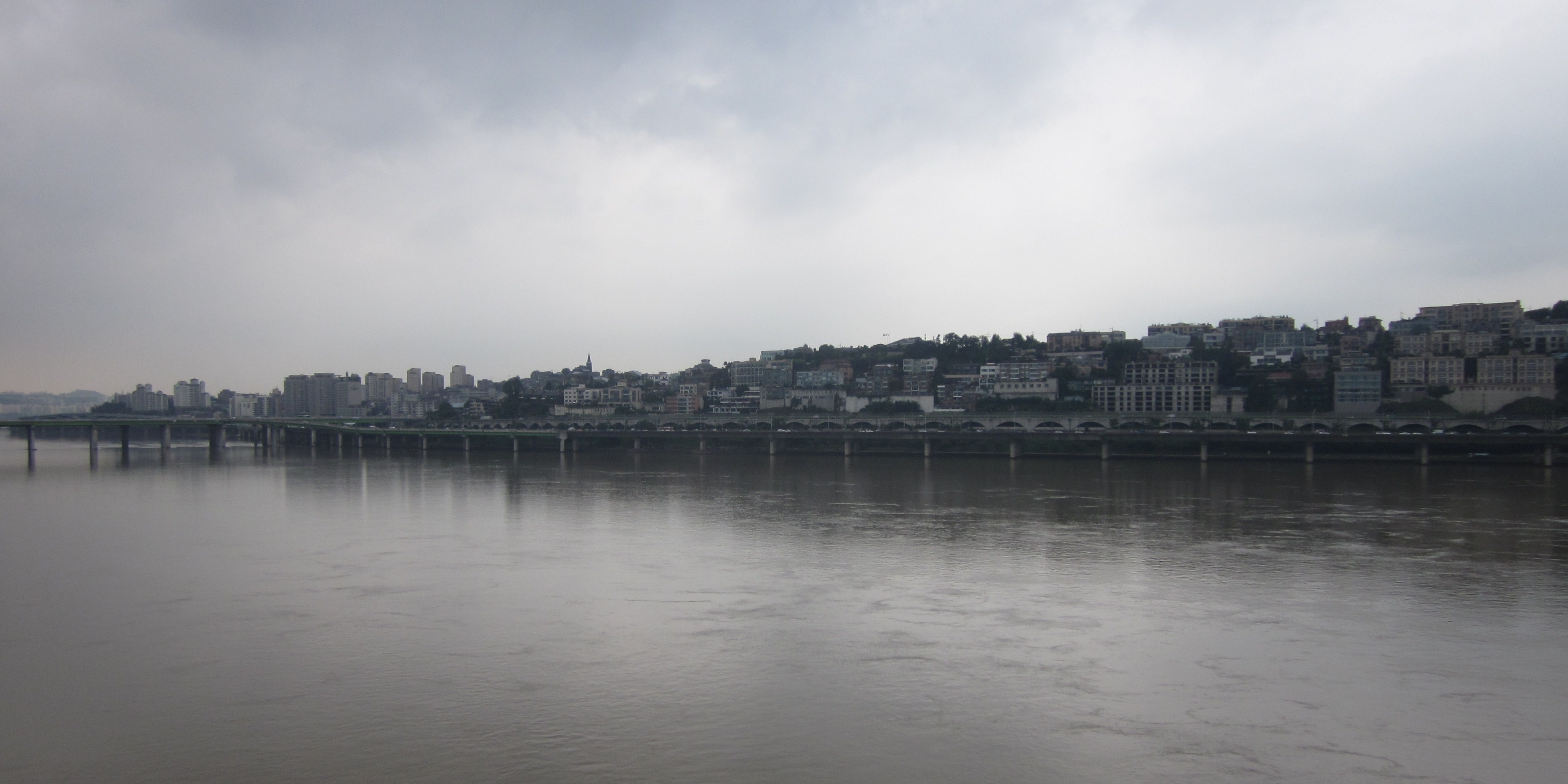
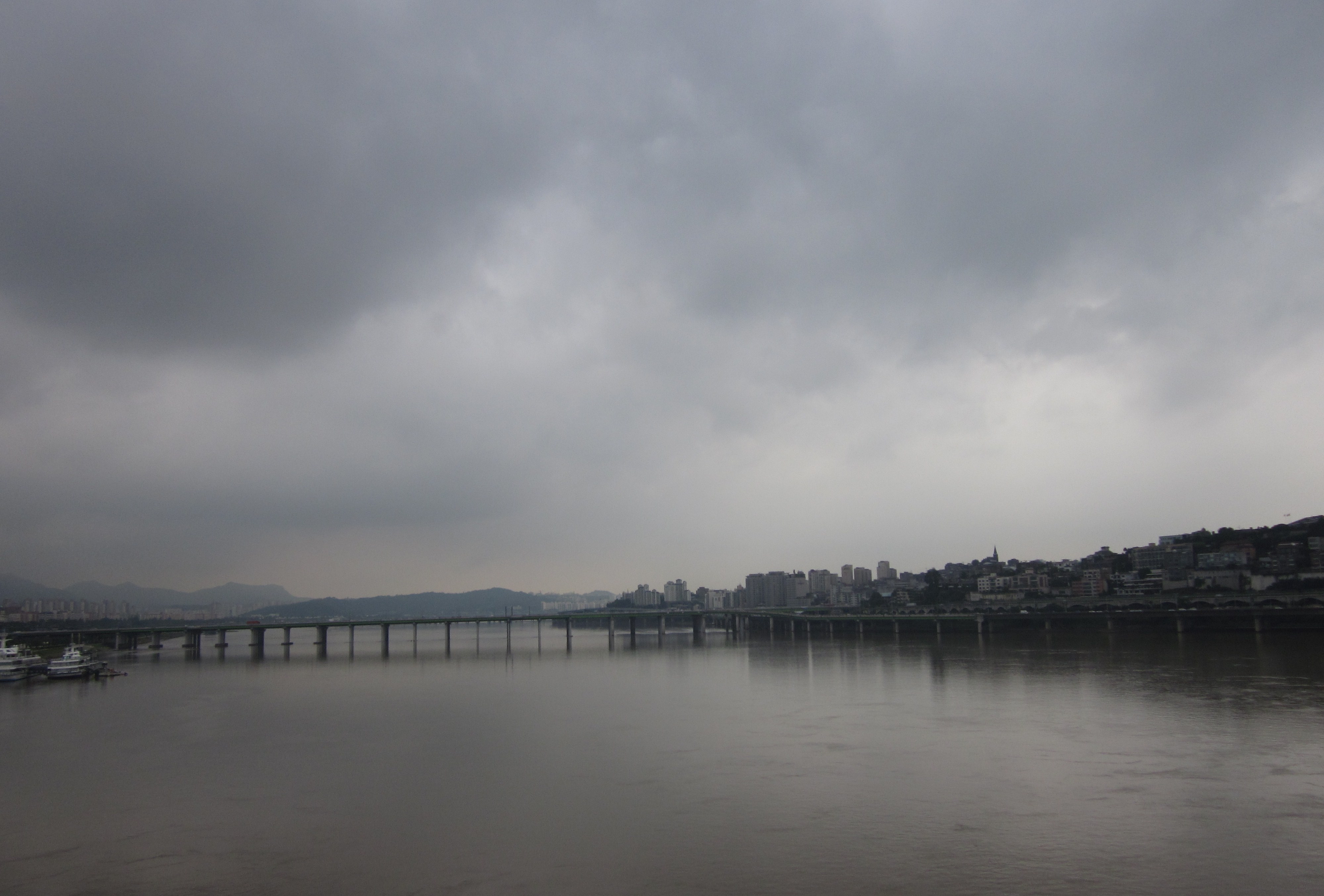
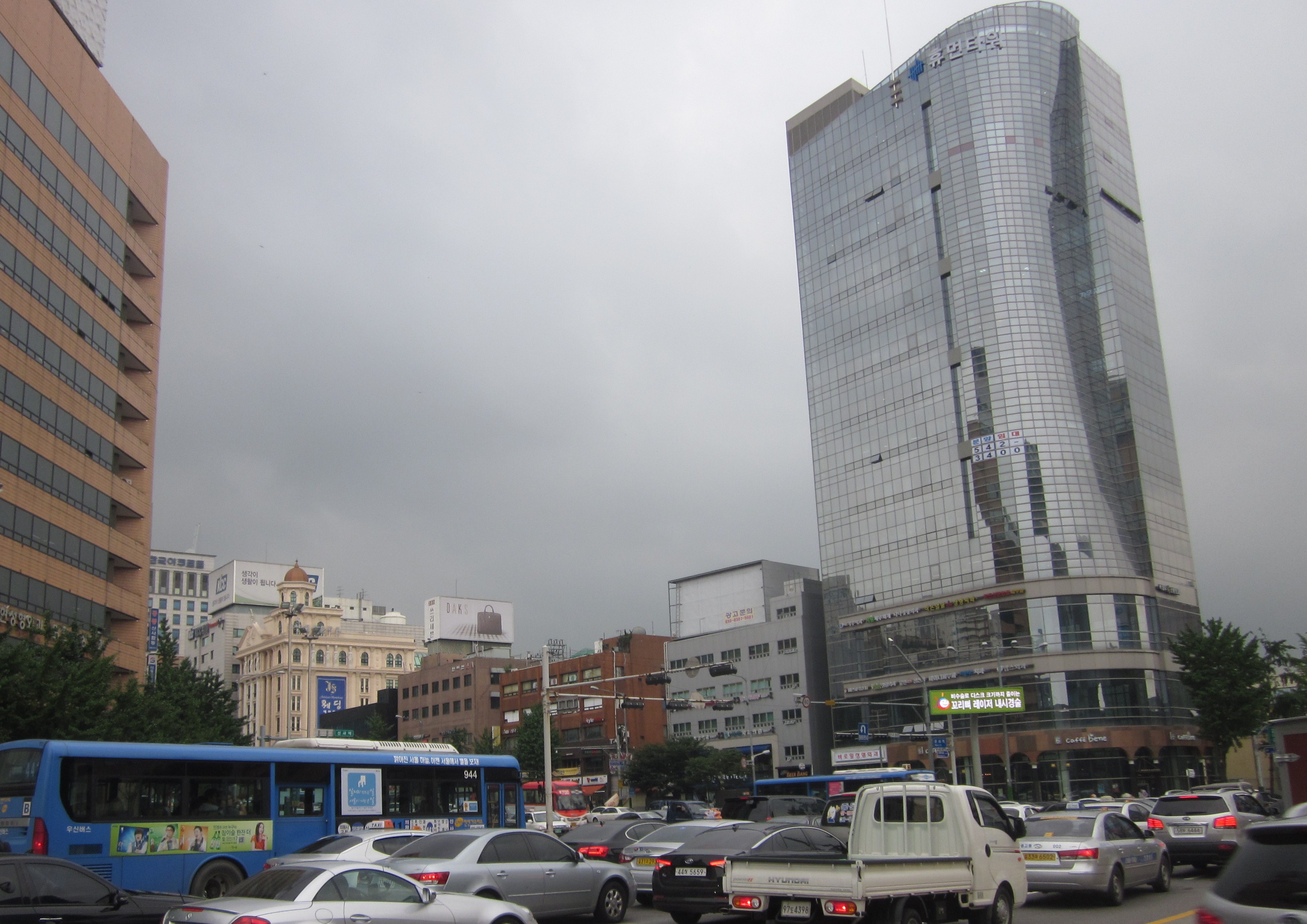
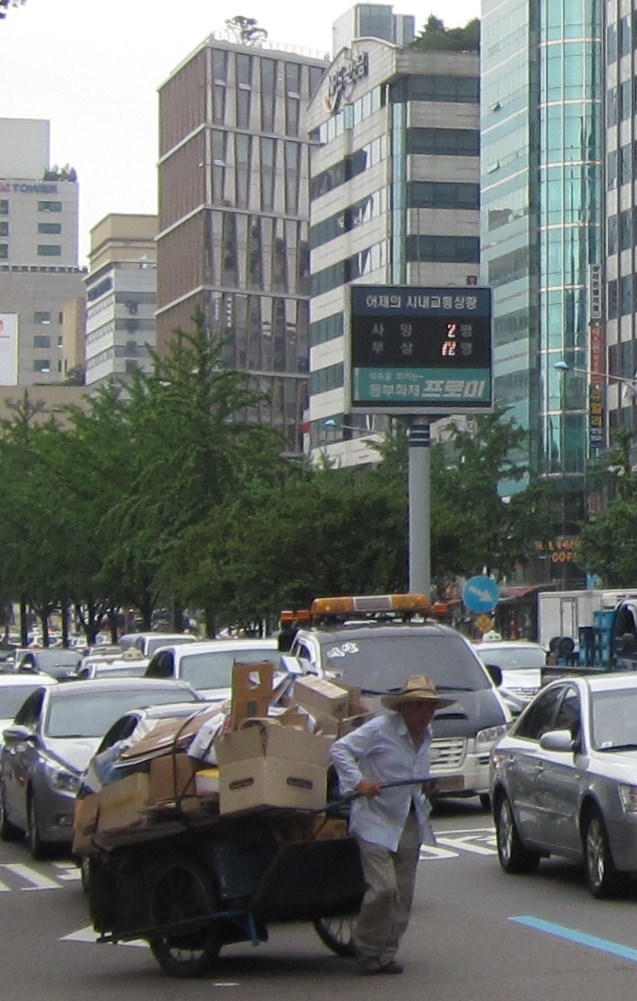
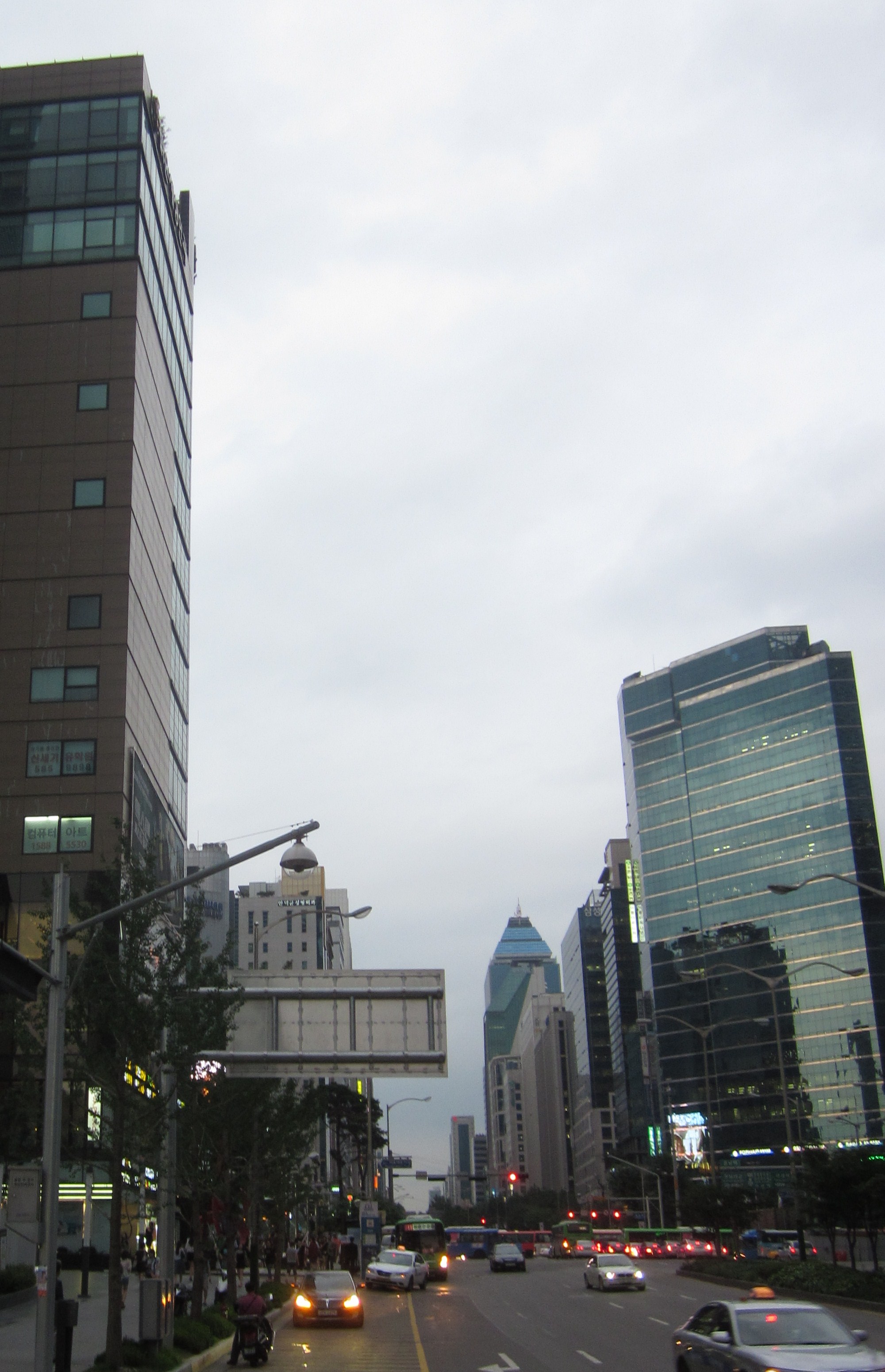
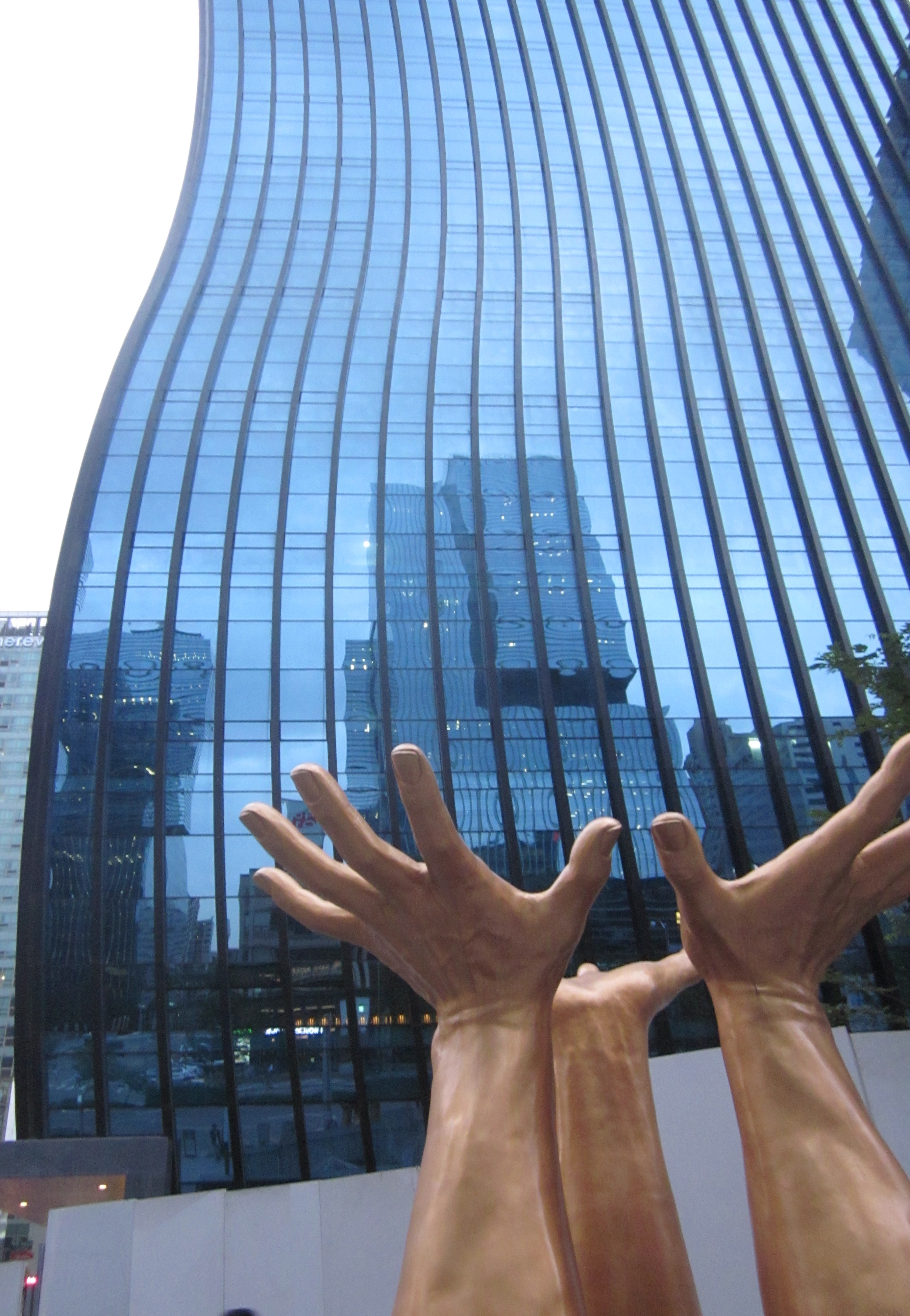
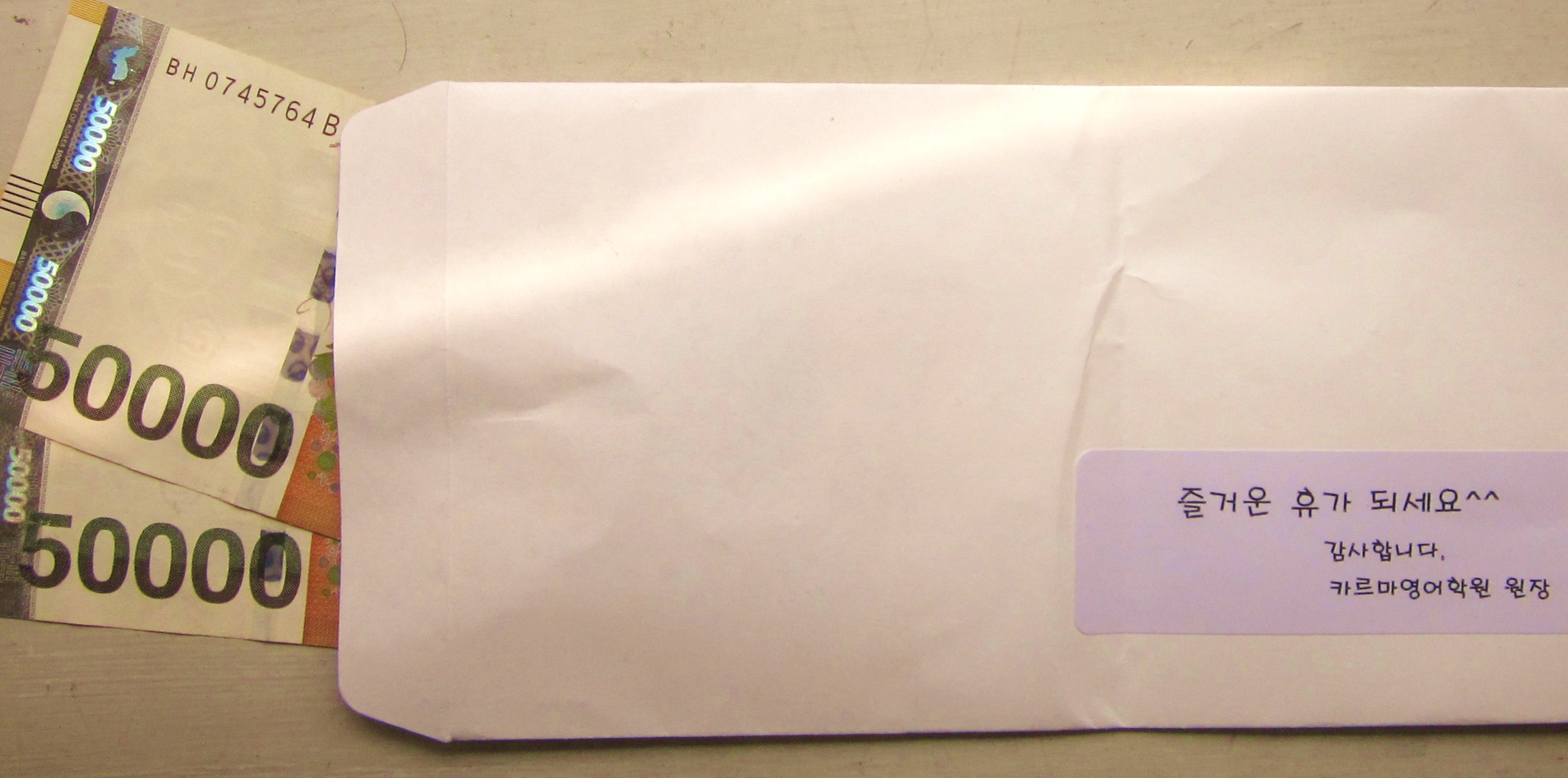
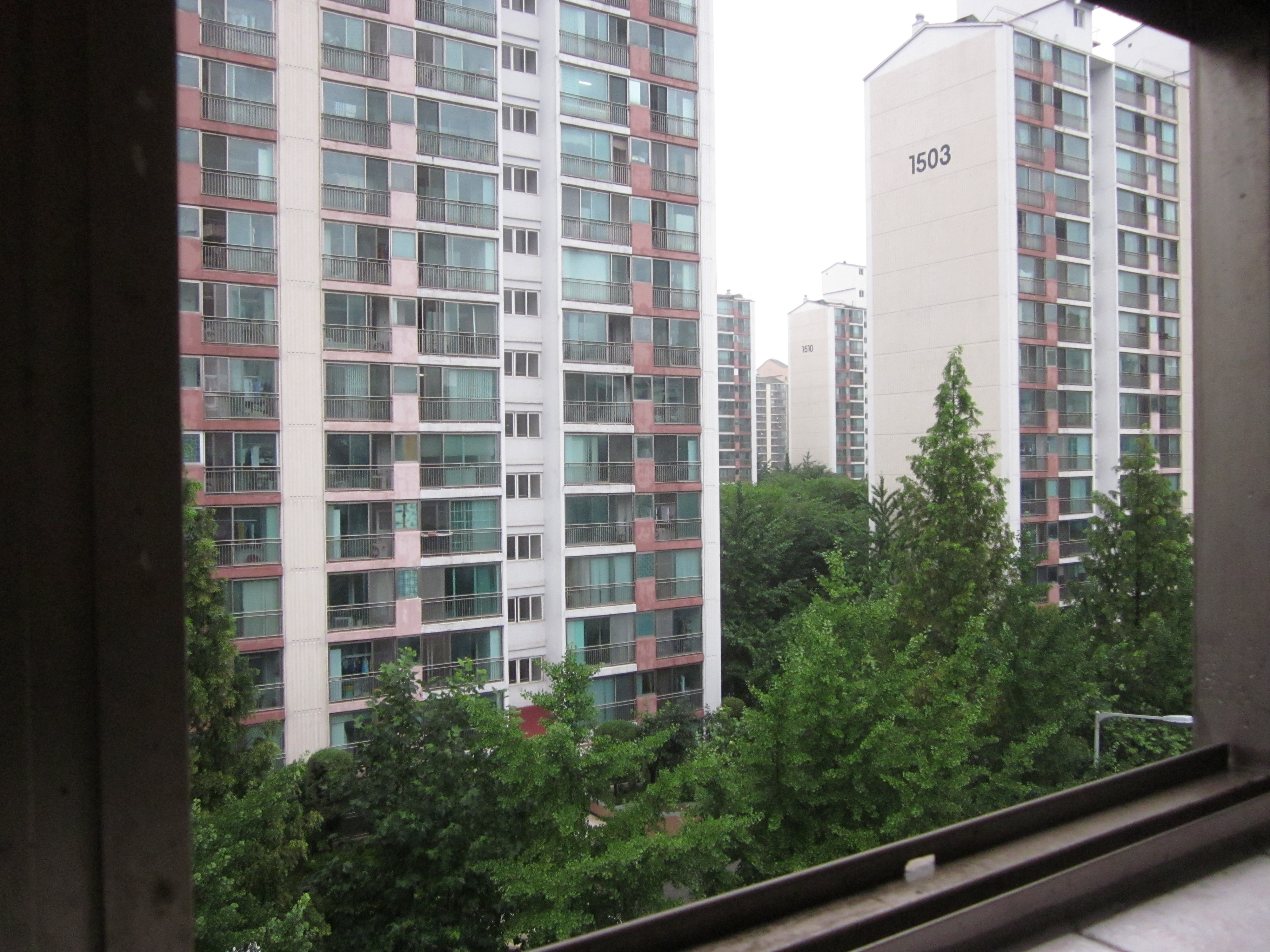
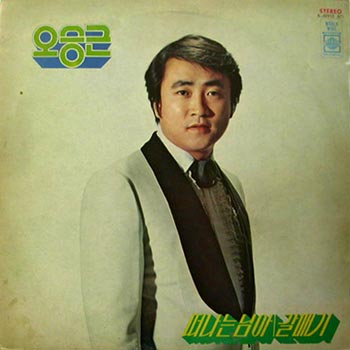
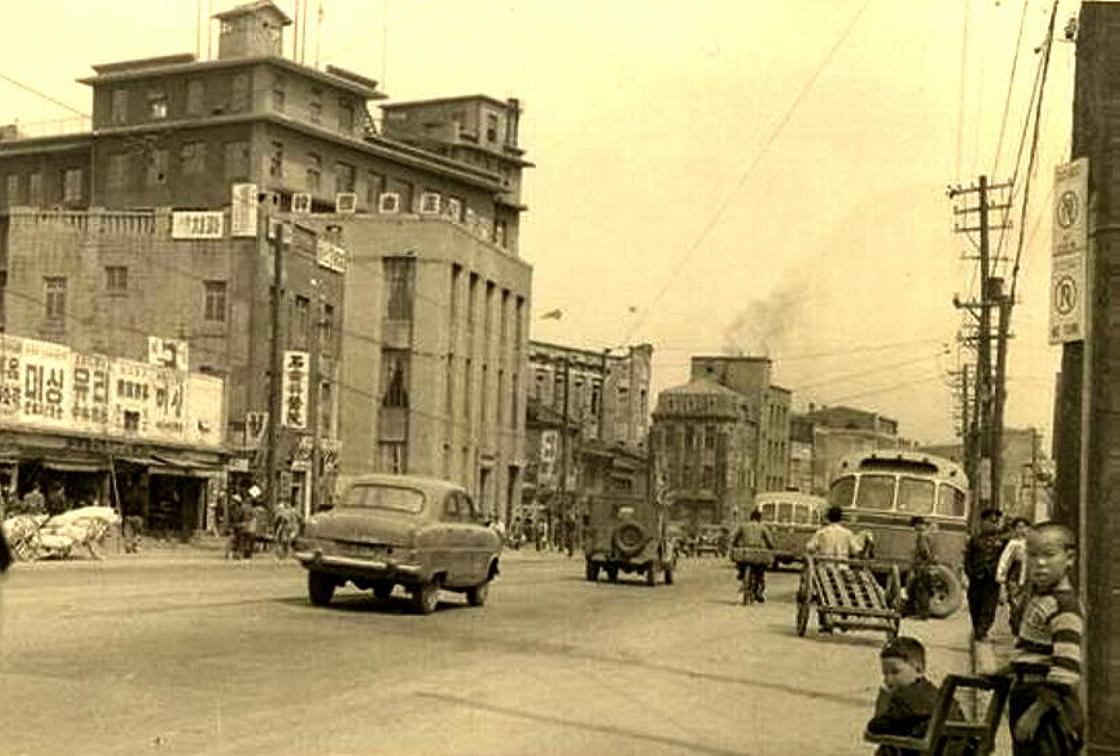
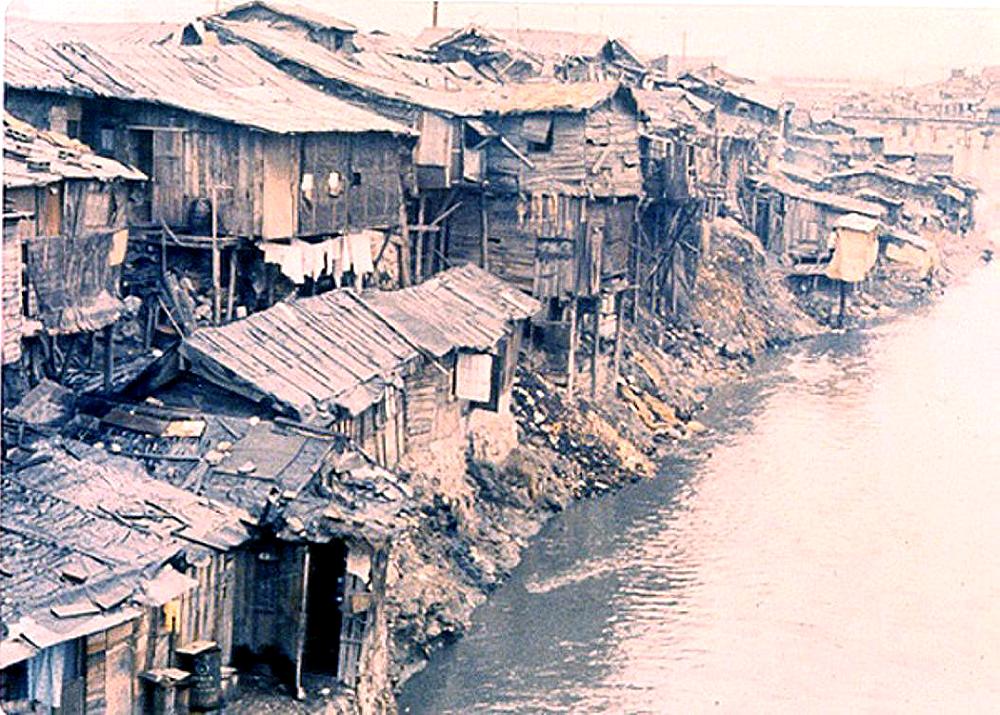
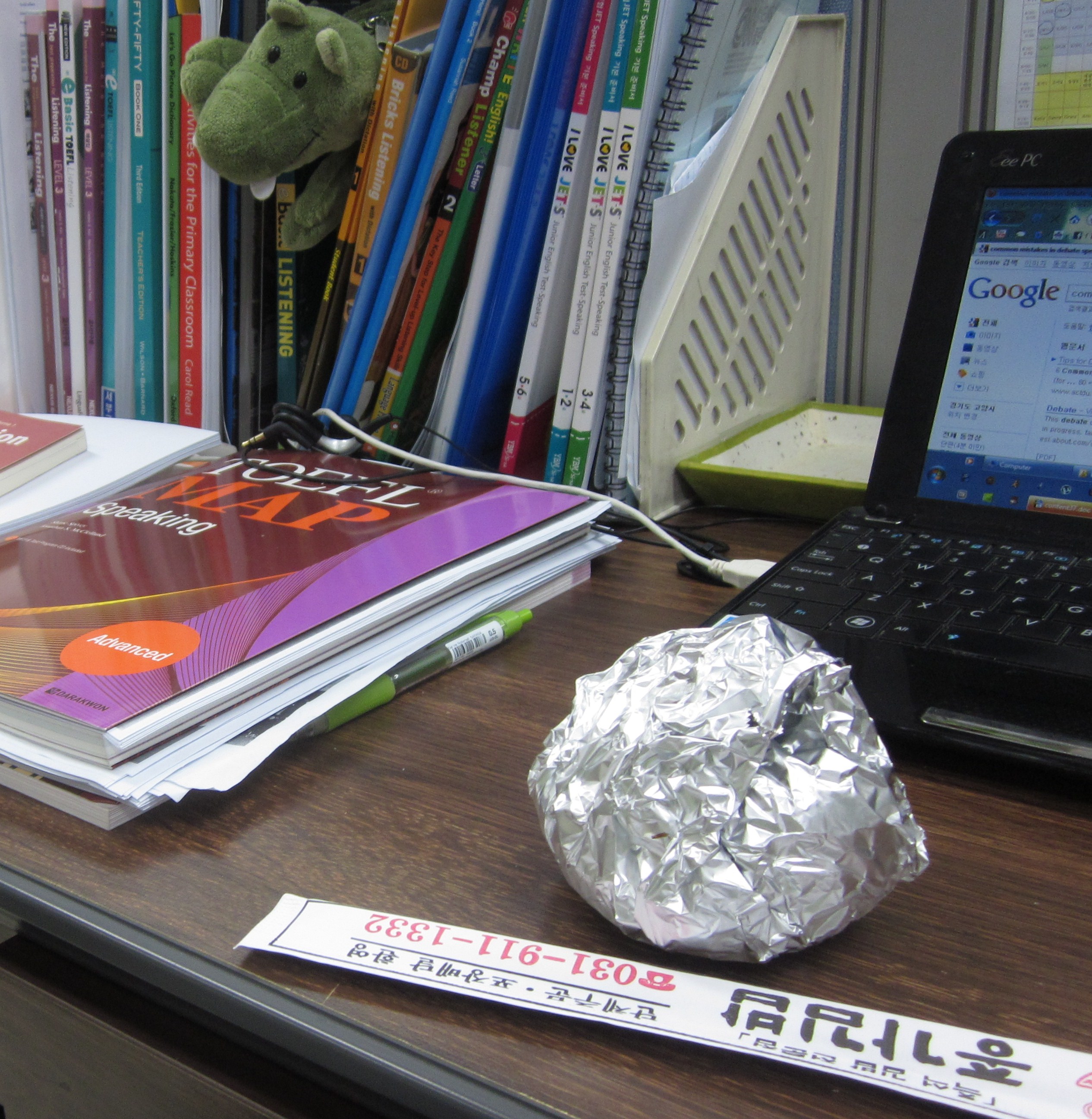
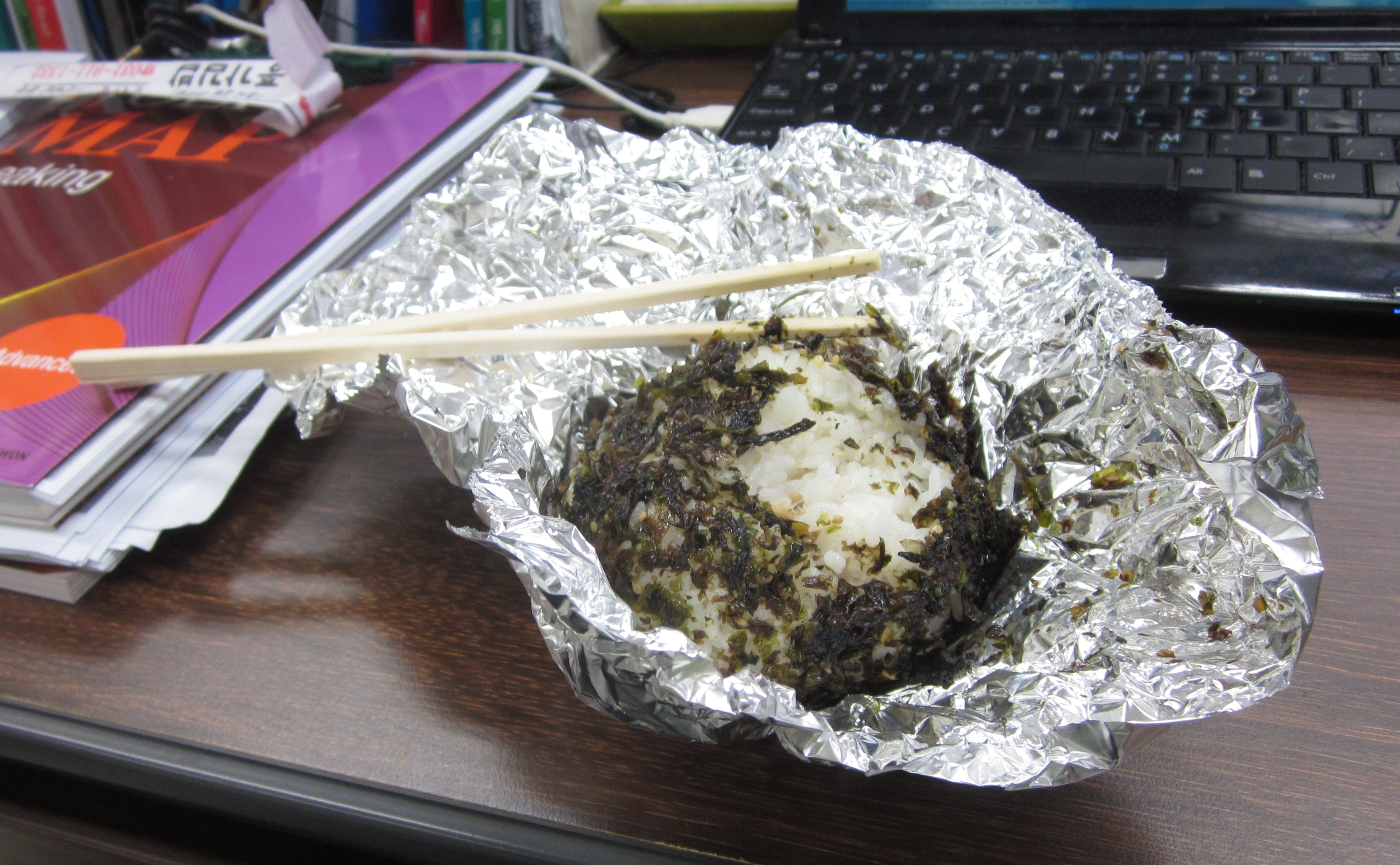
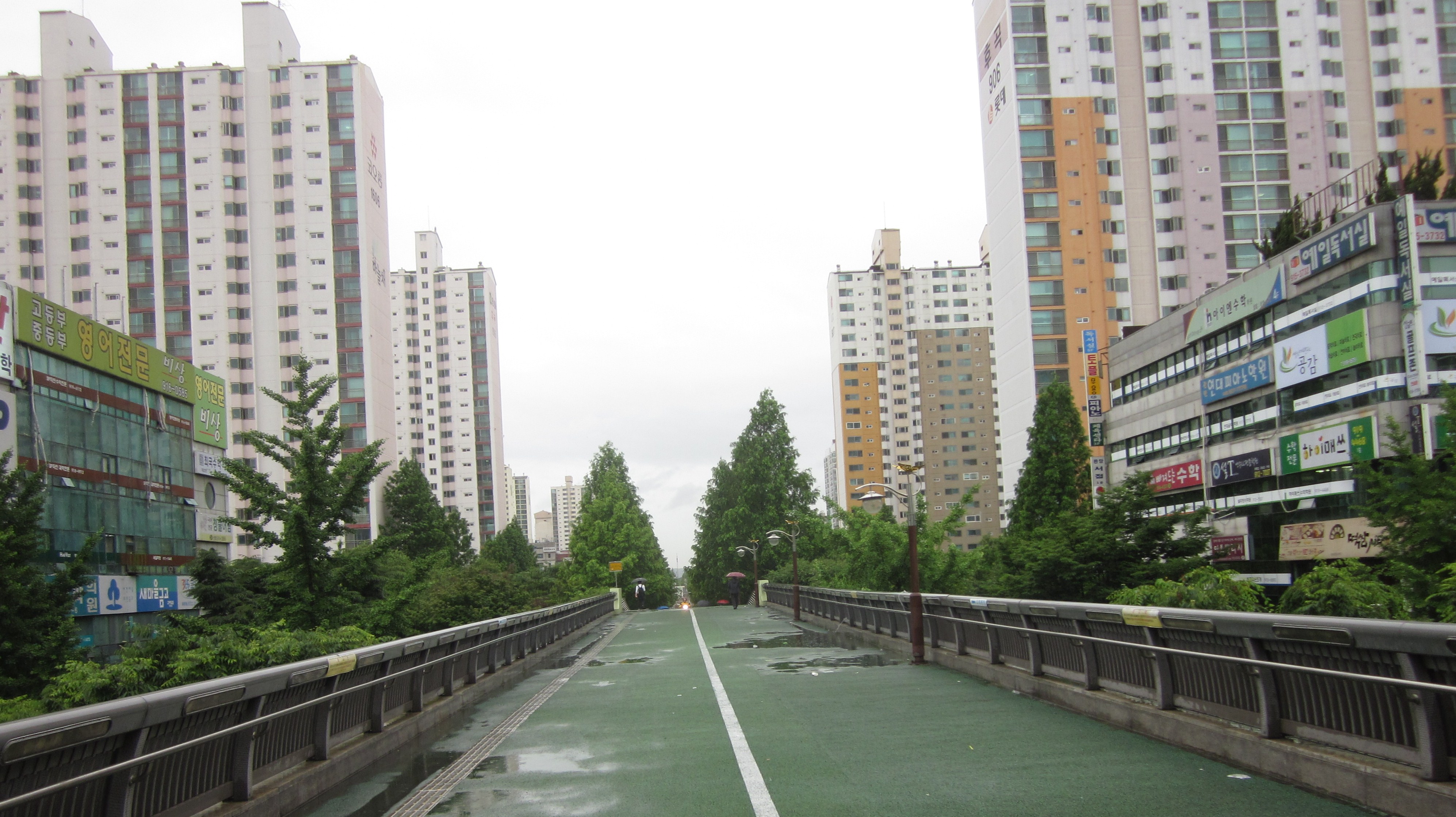
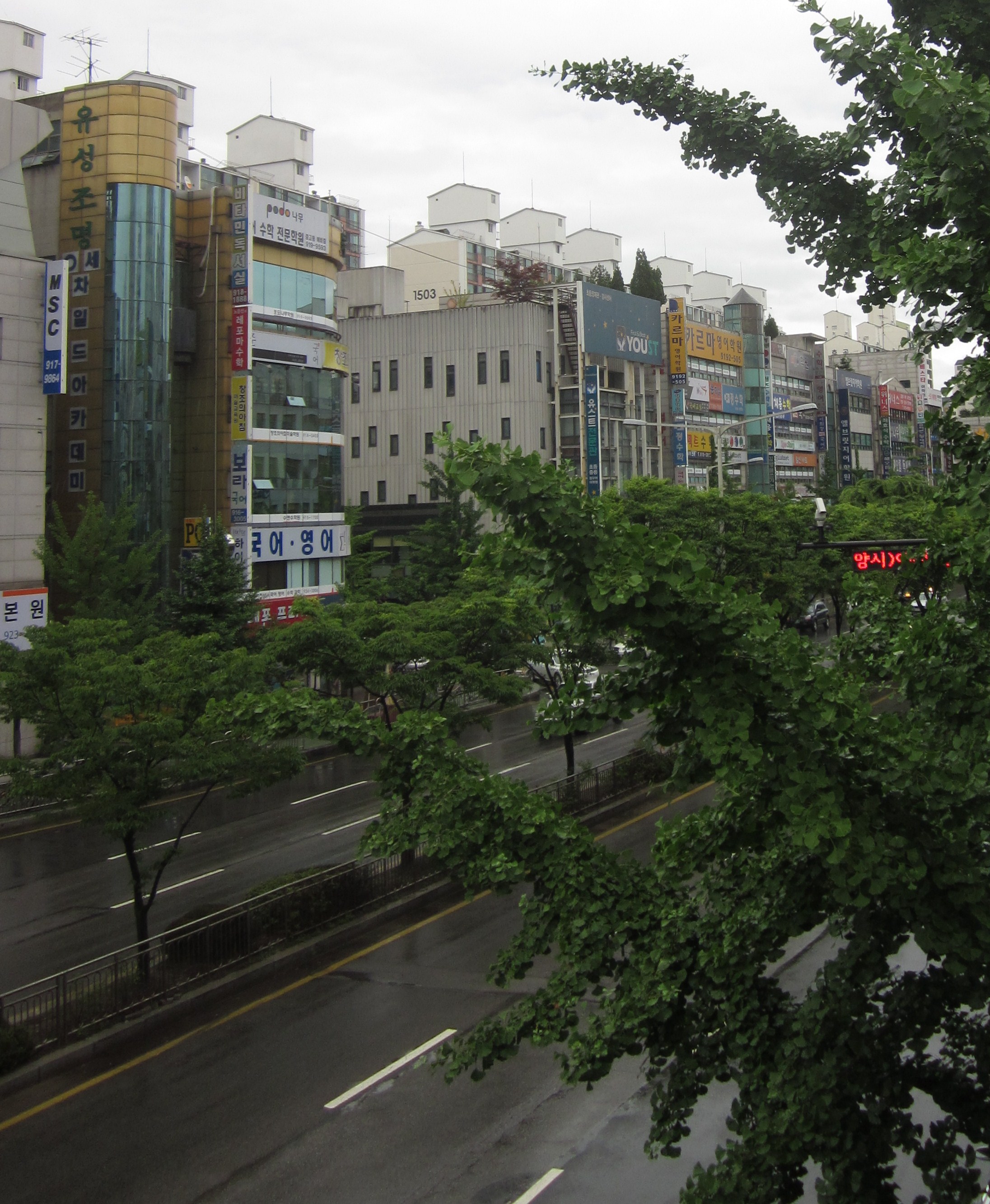
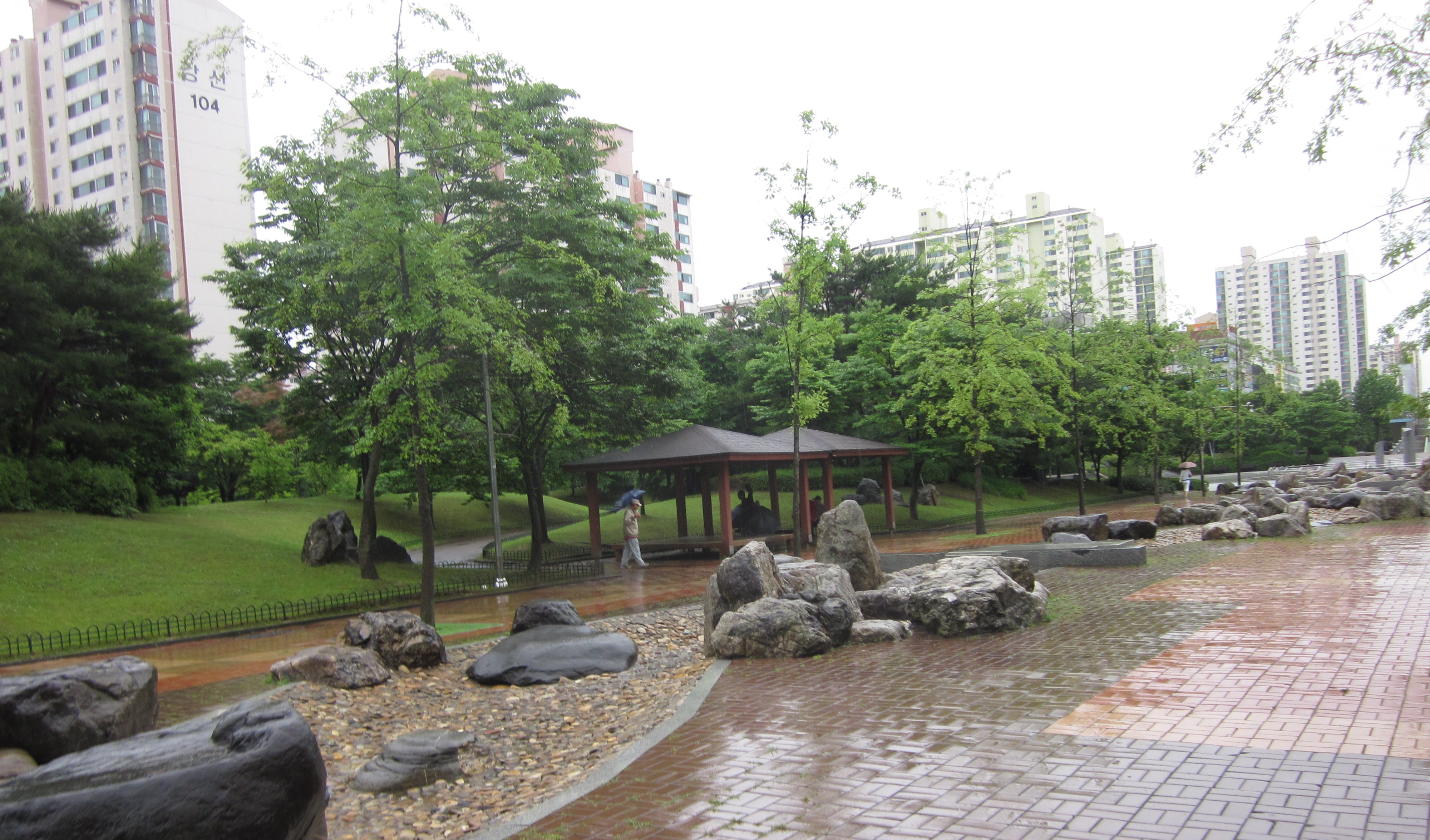
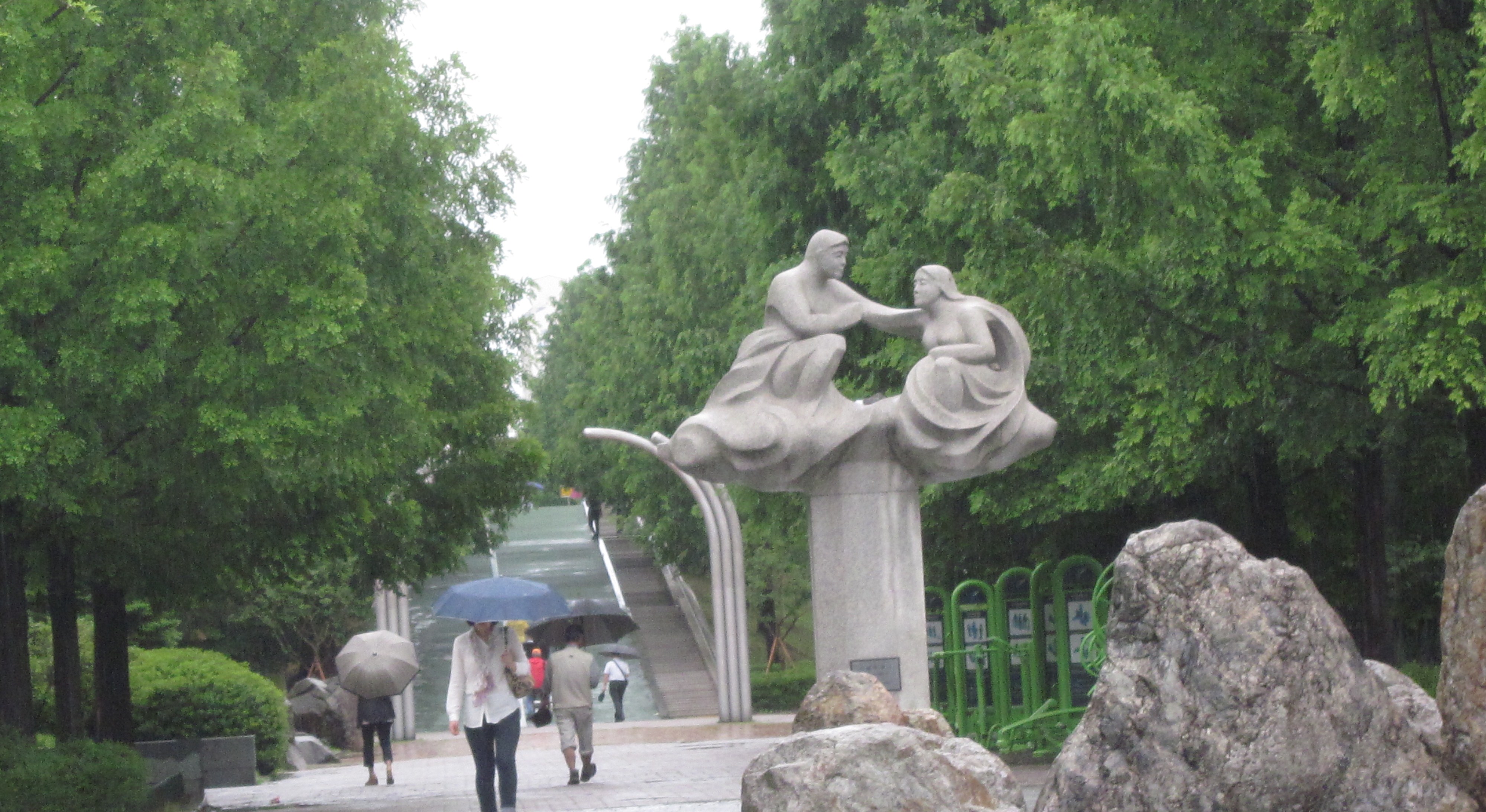
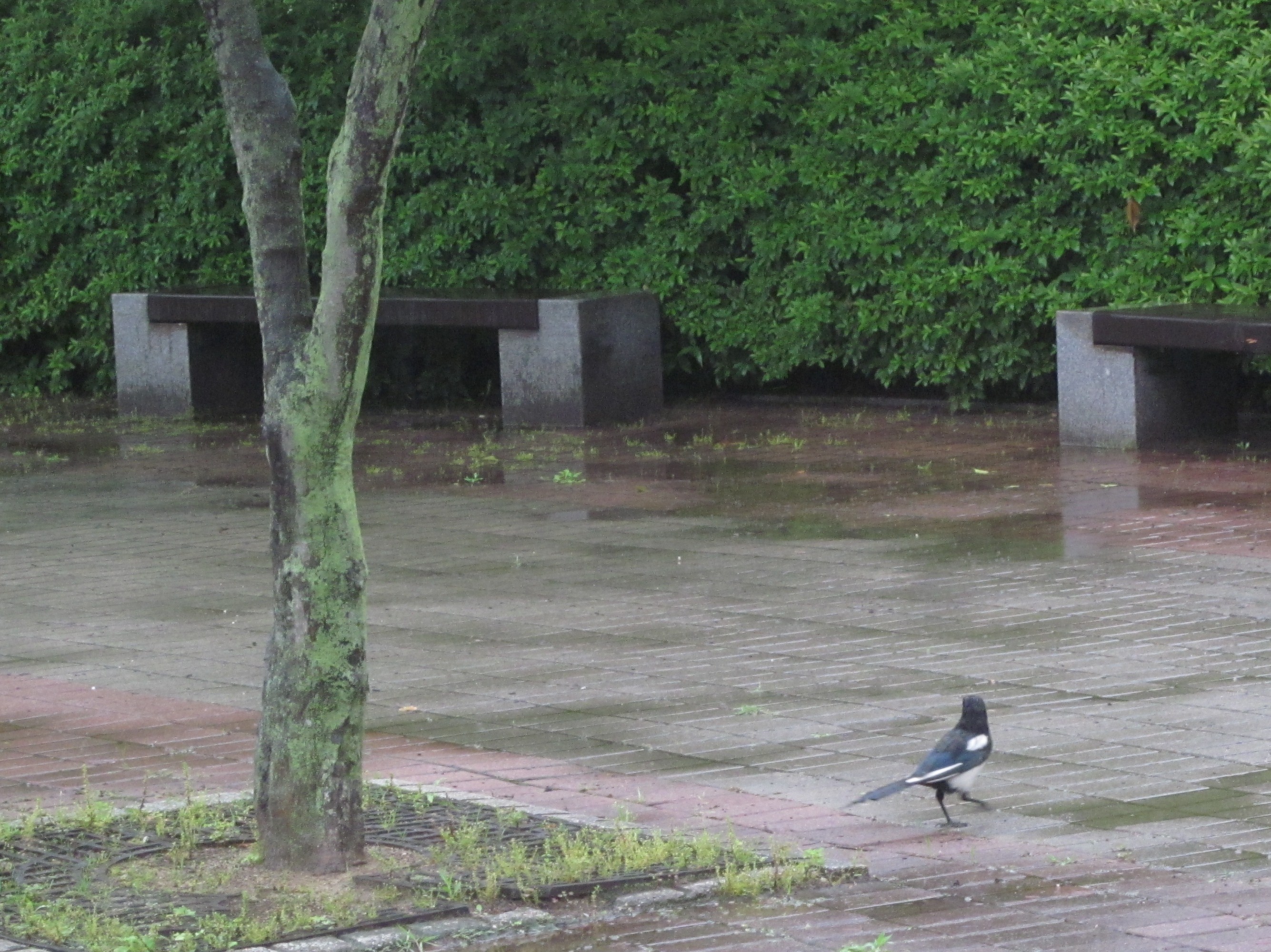
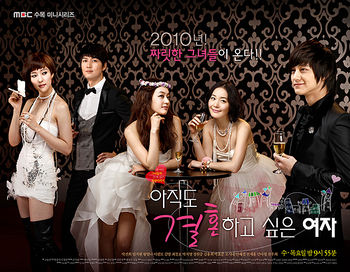


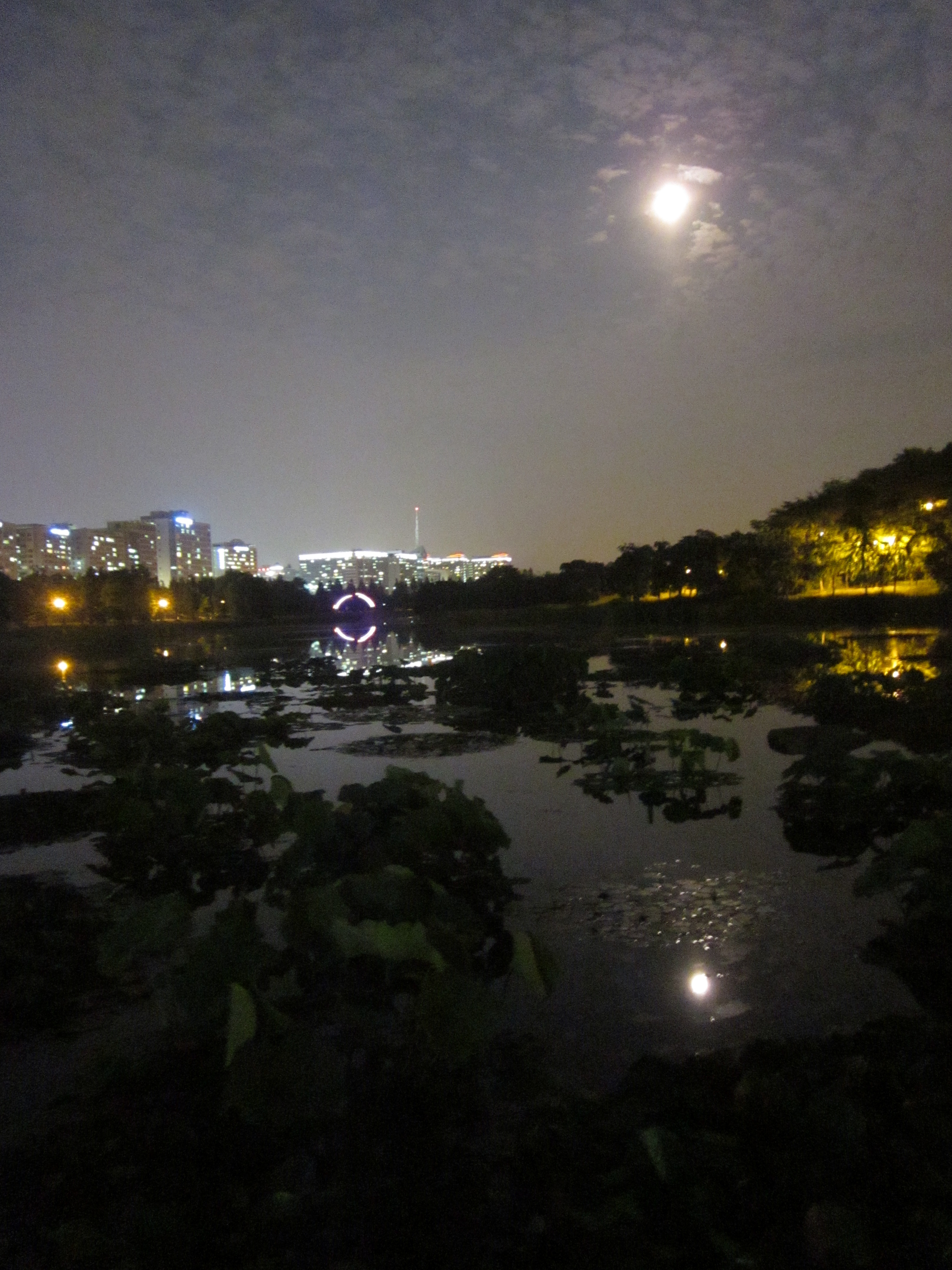
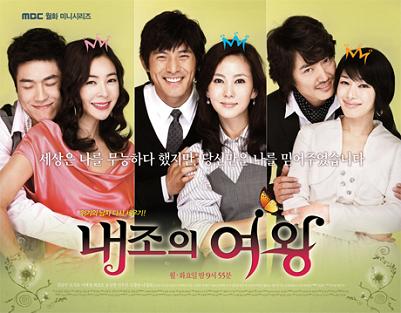

 안녕하세요~
안녕하세요~